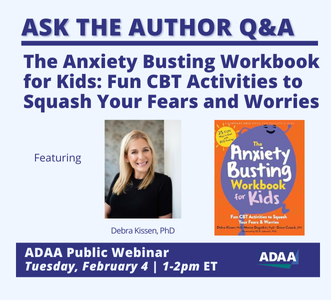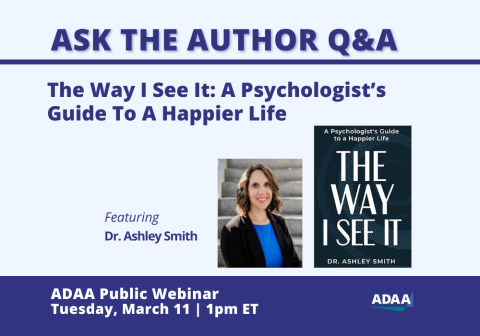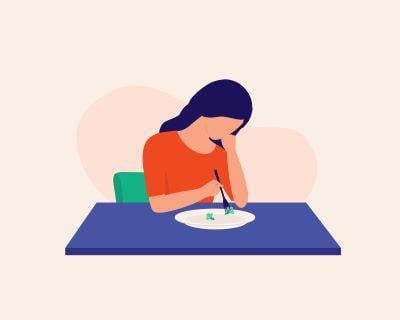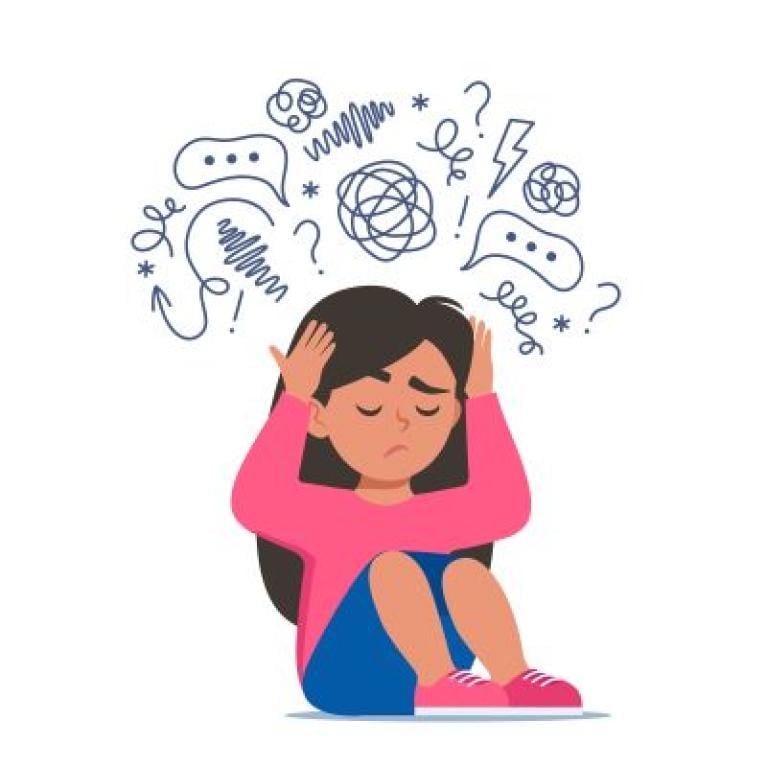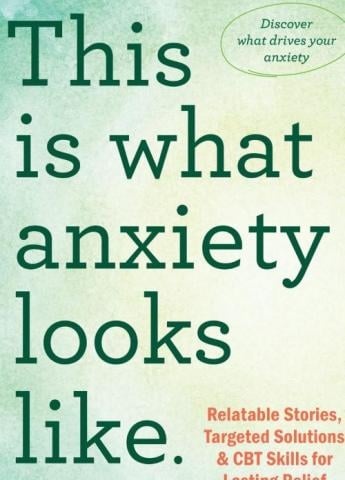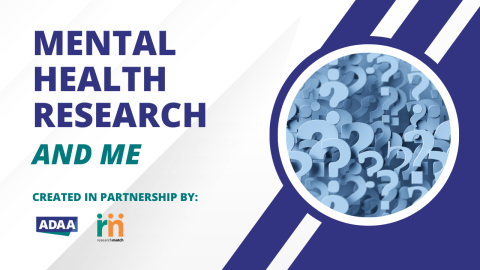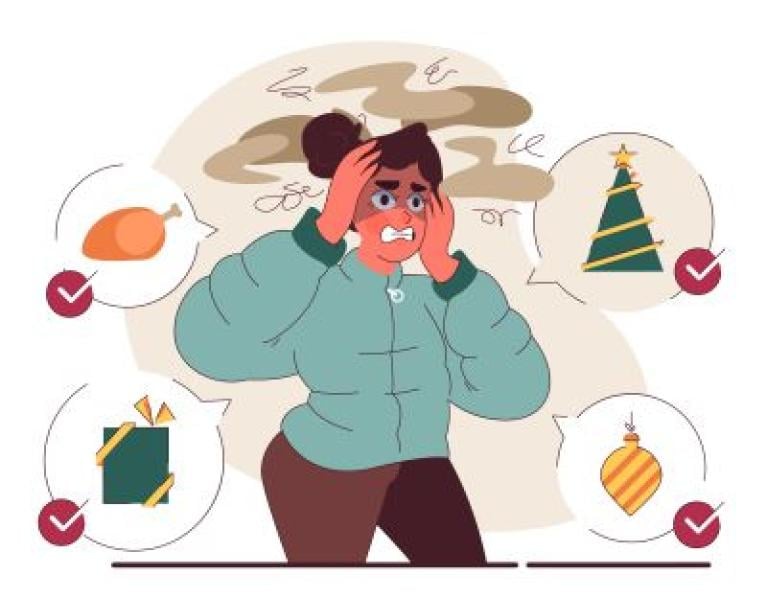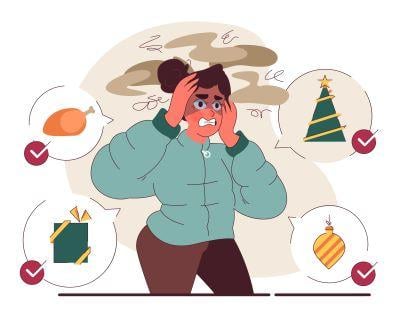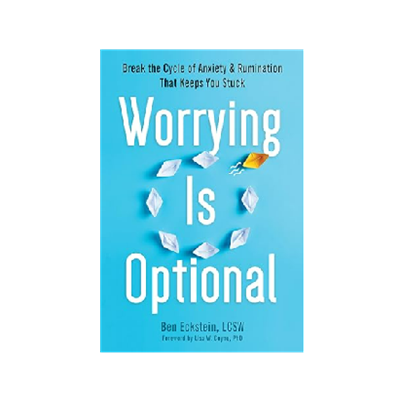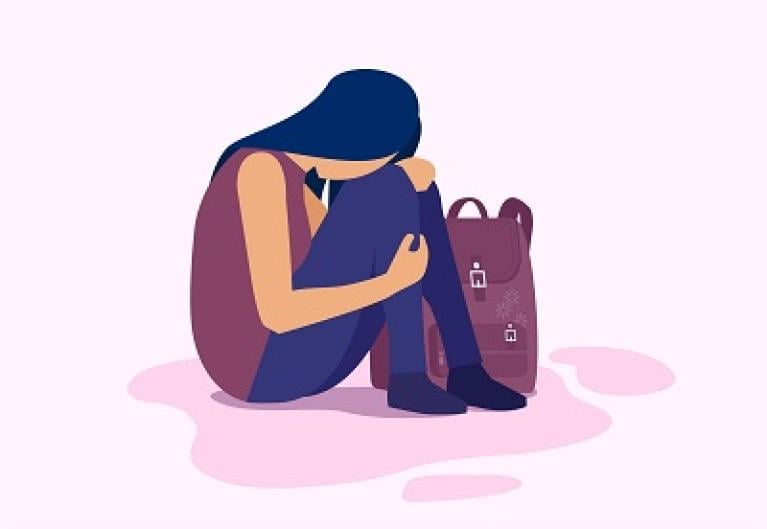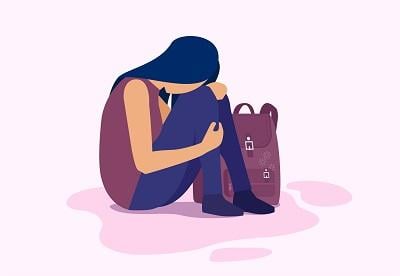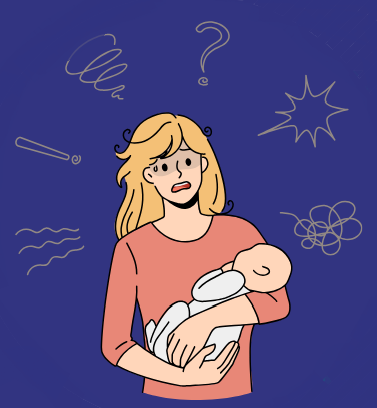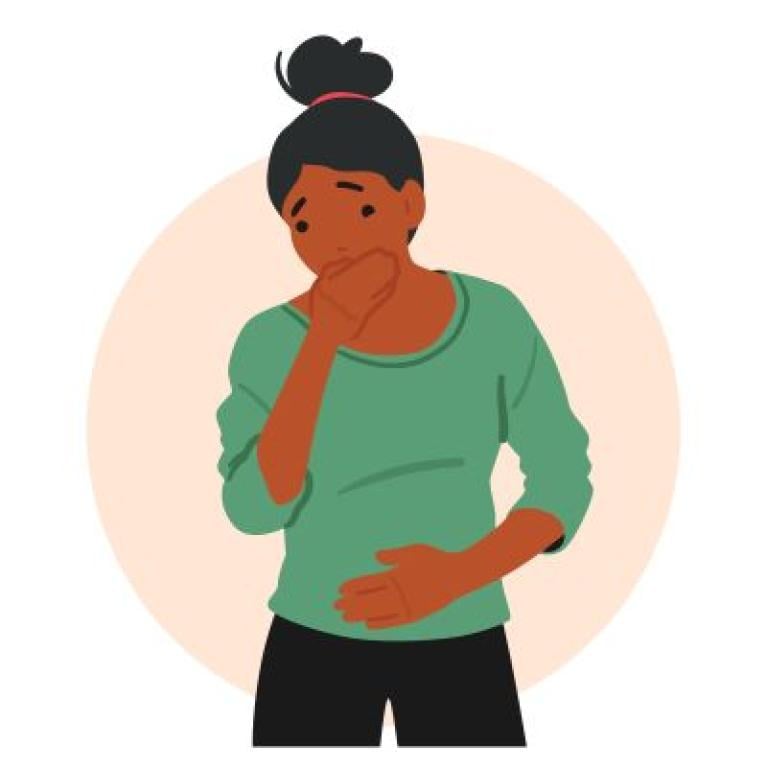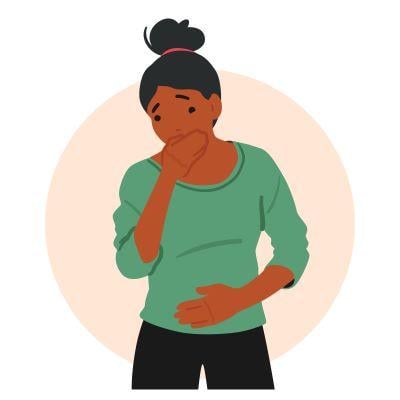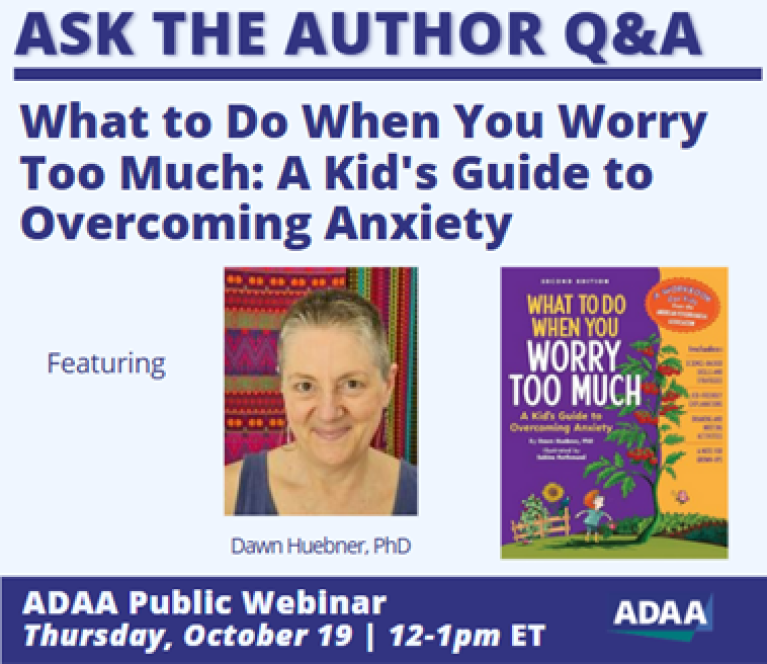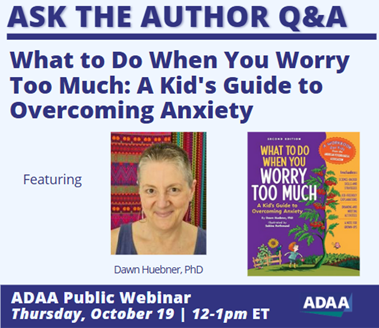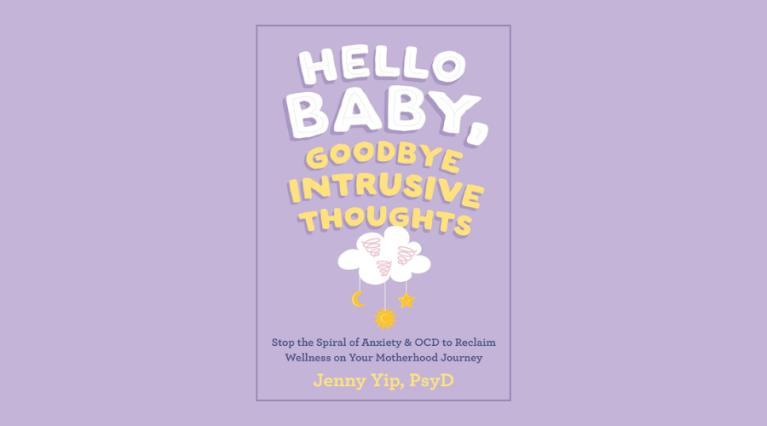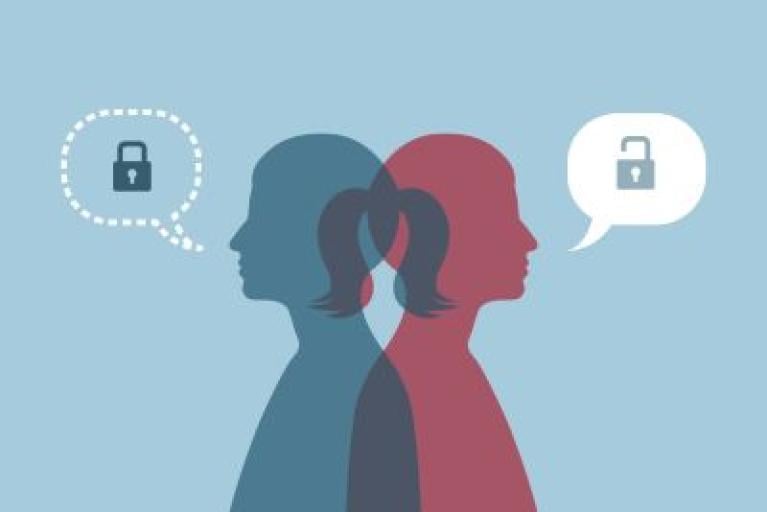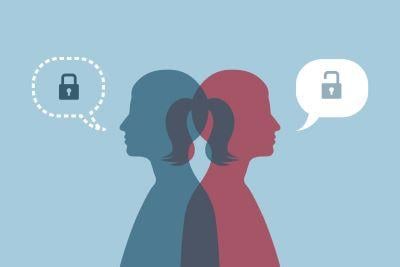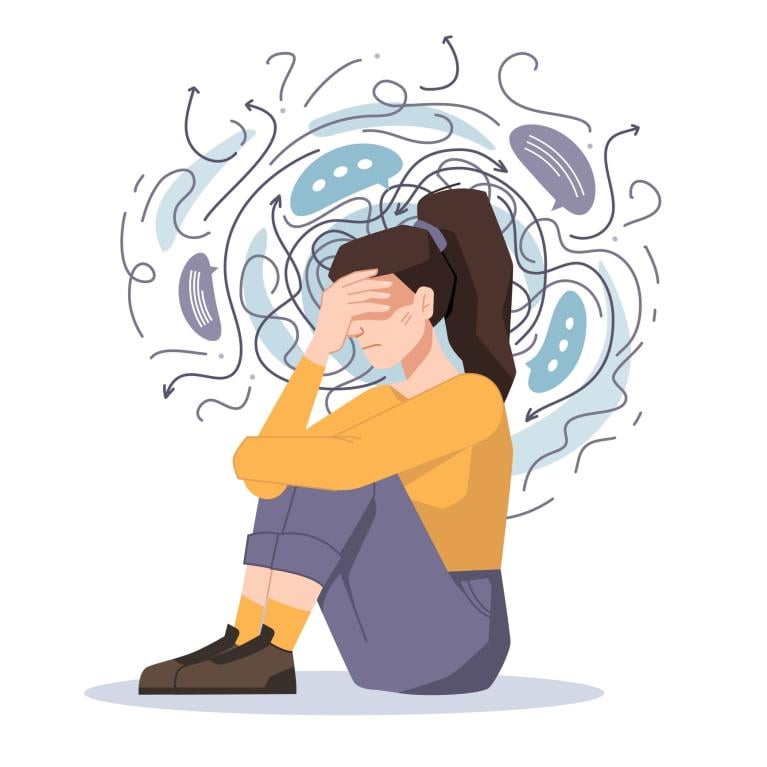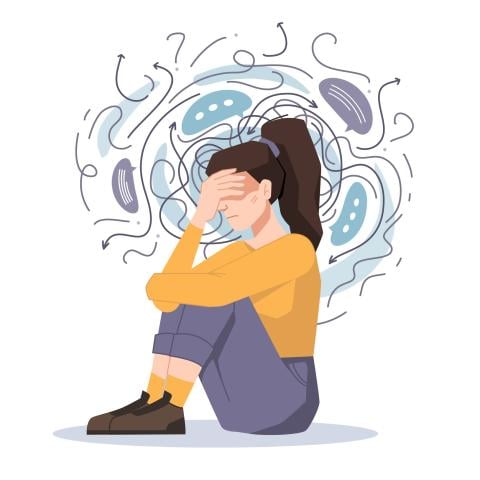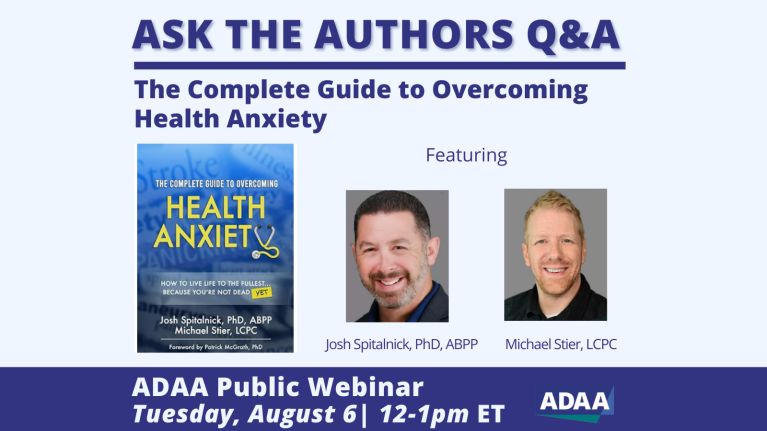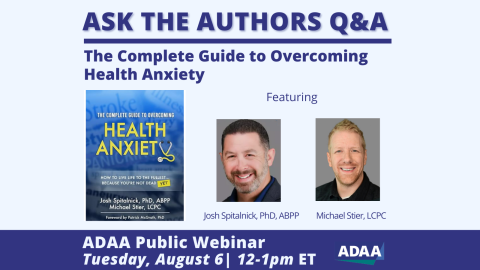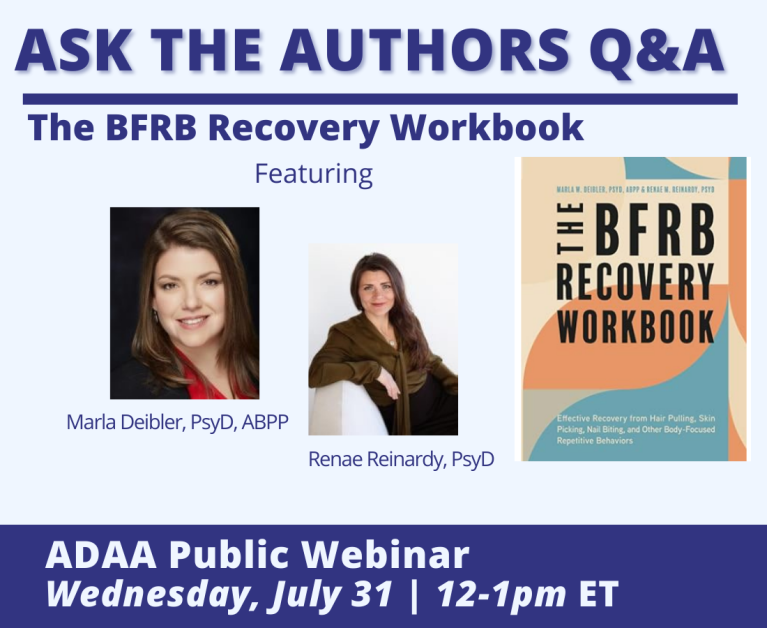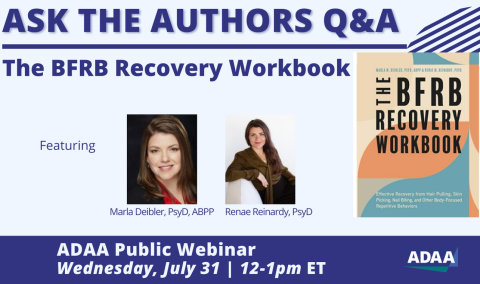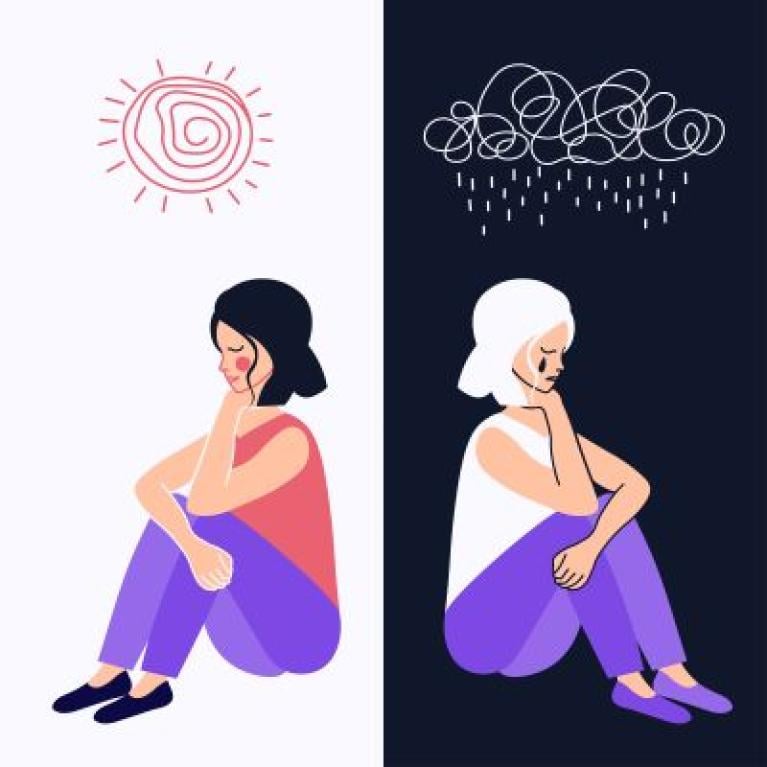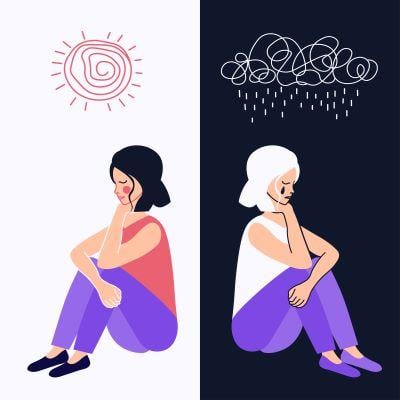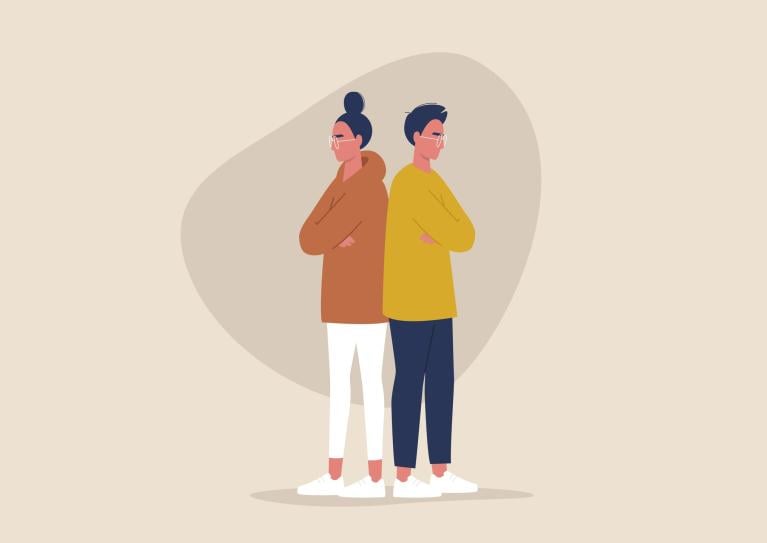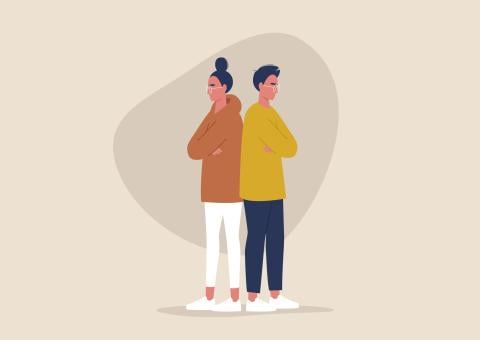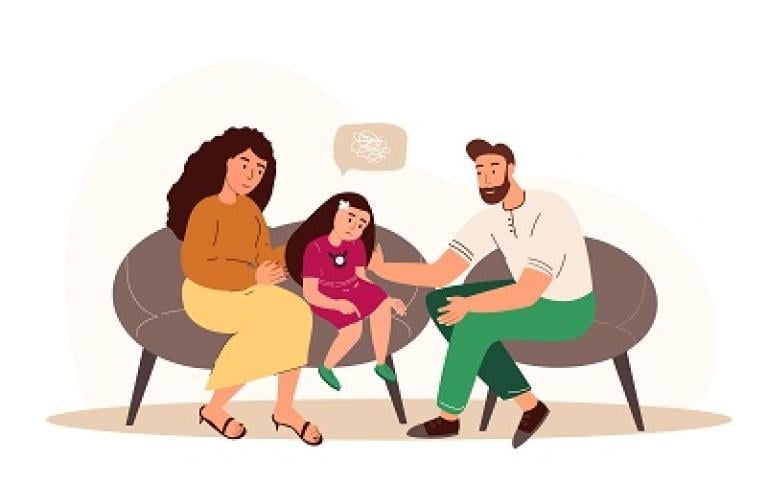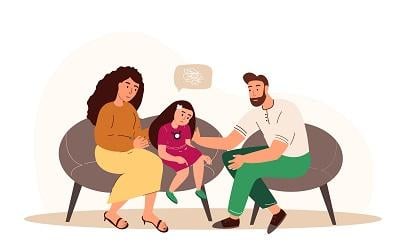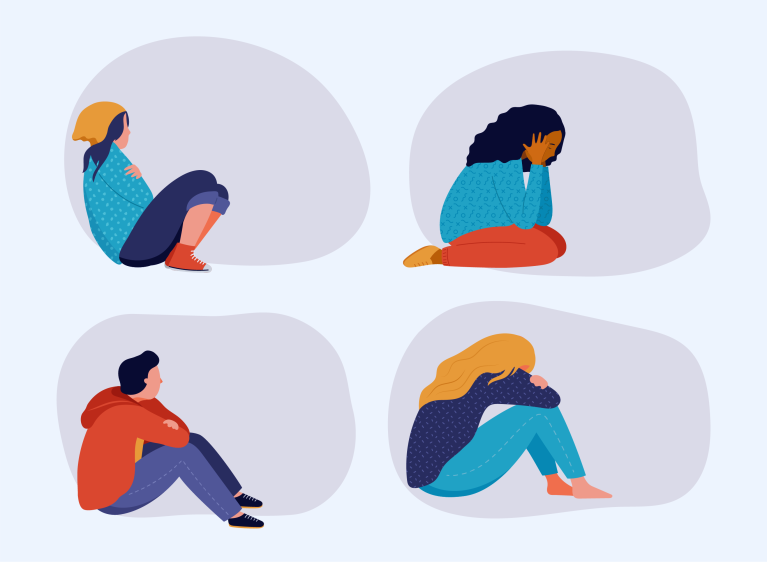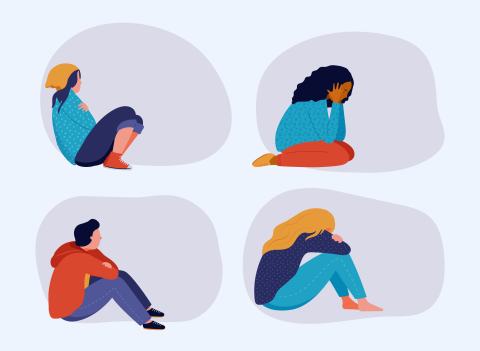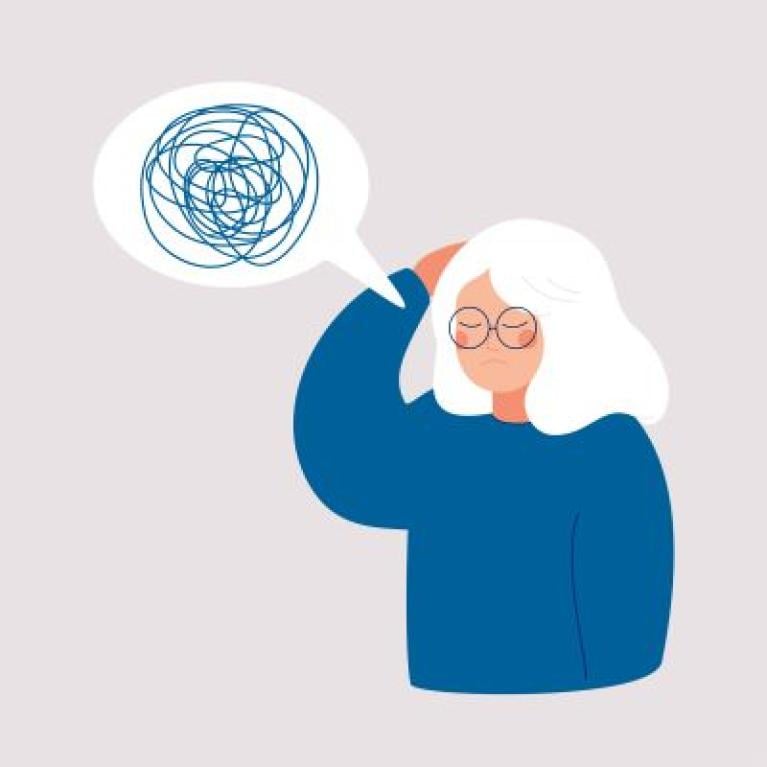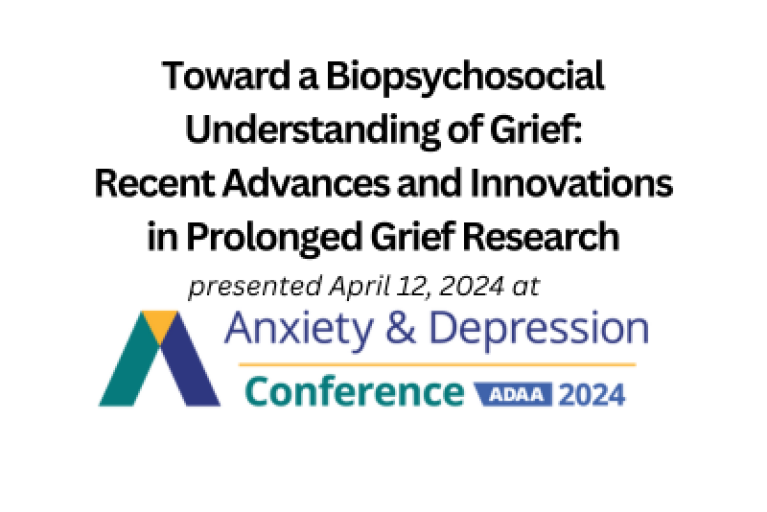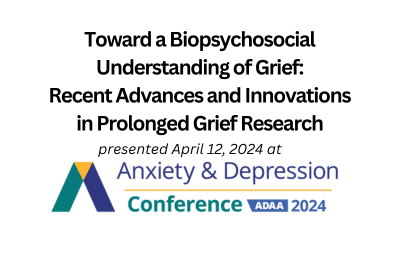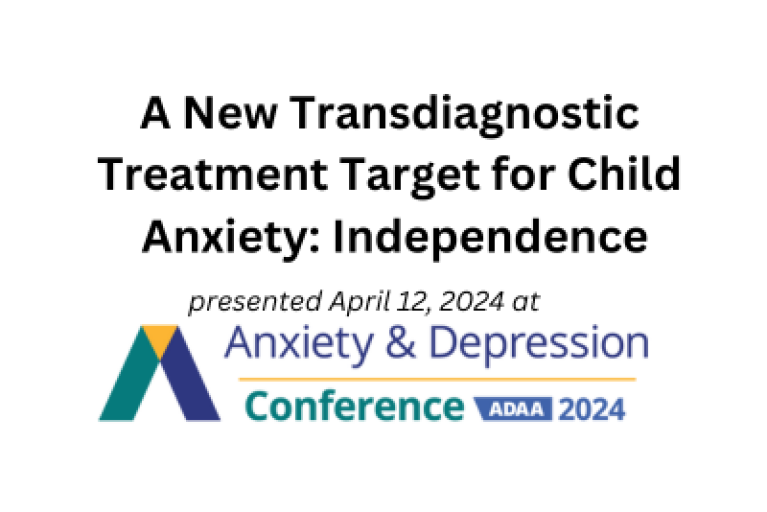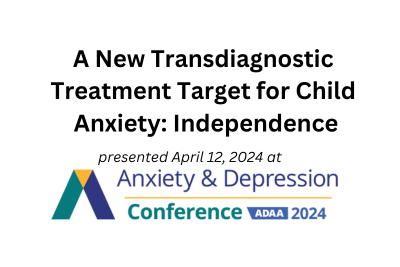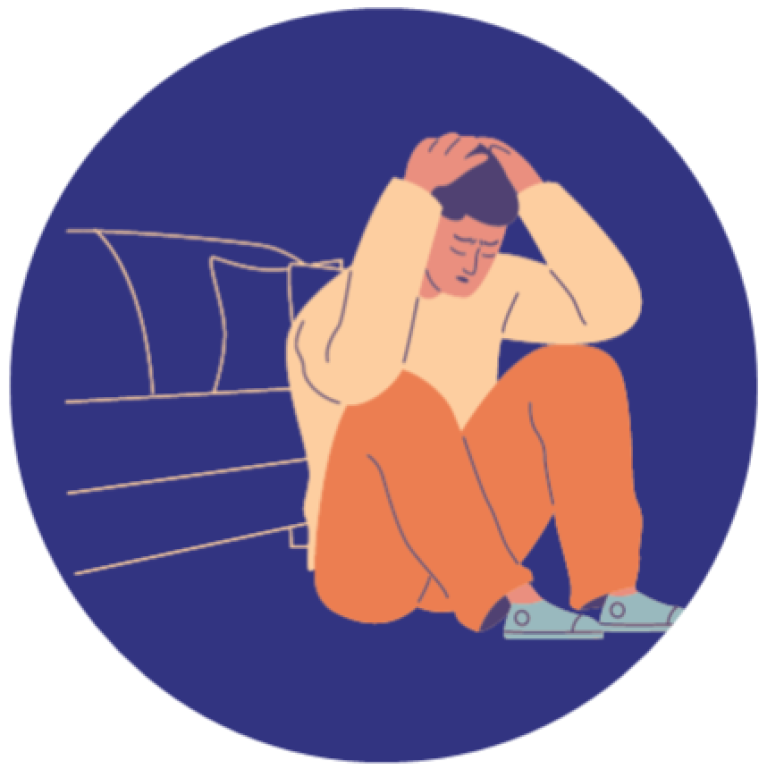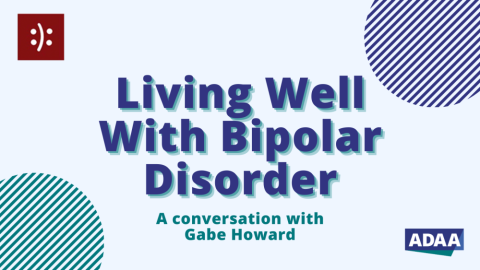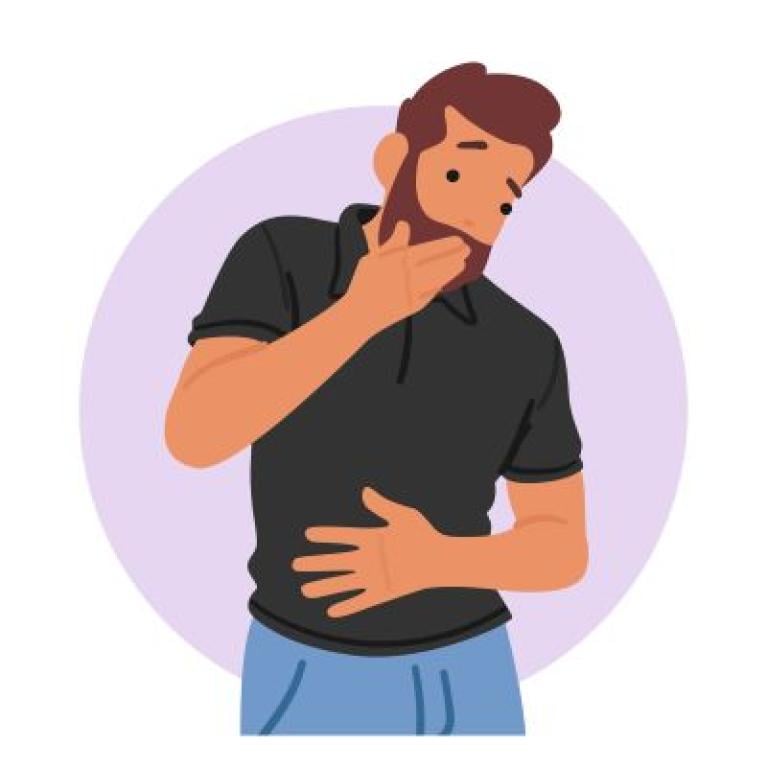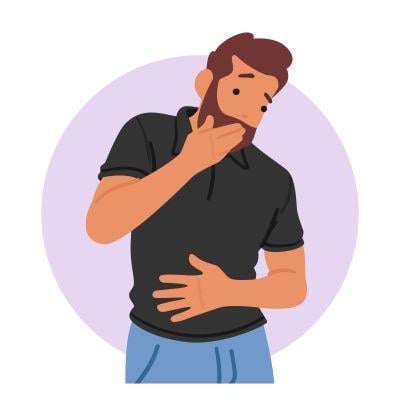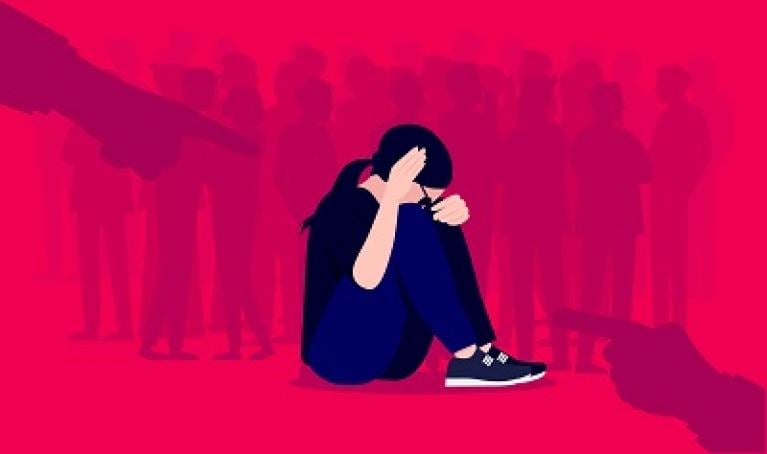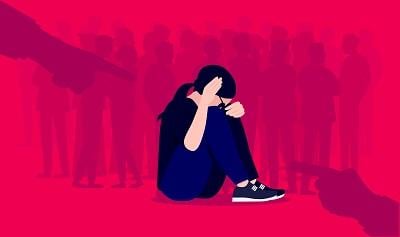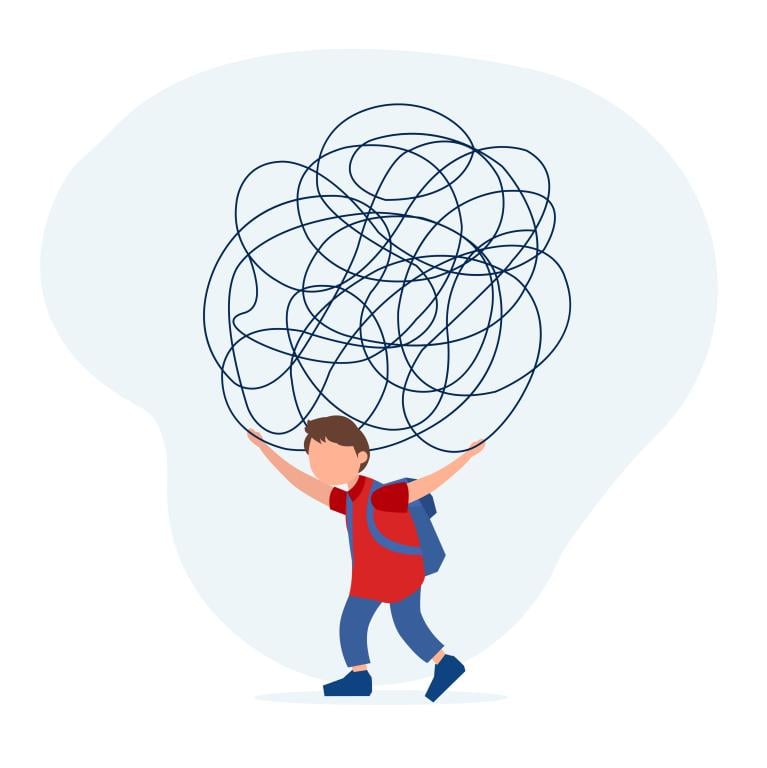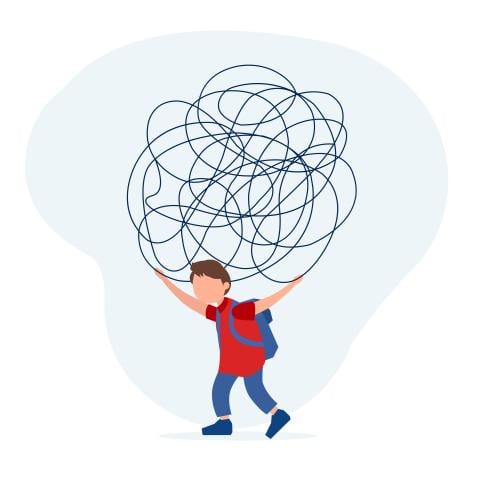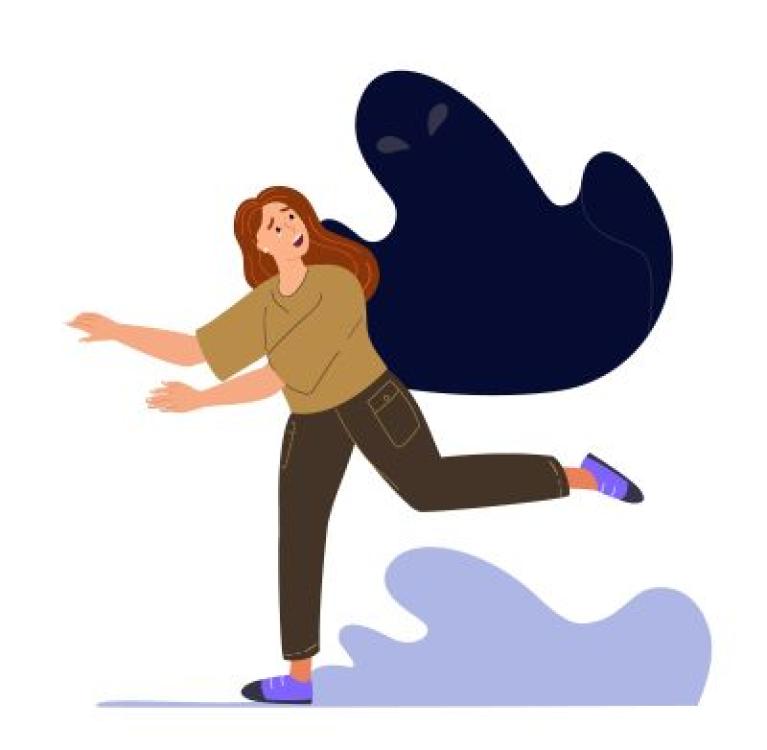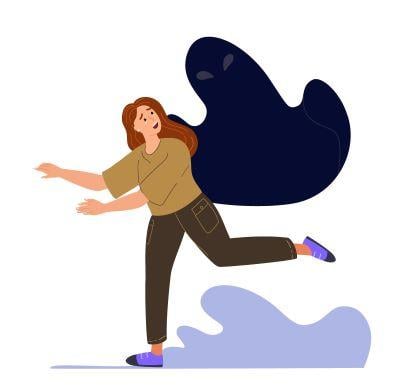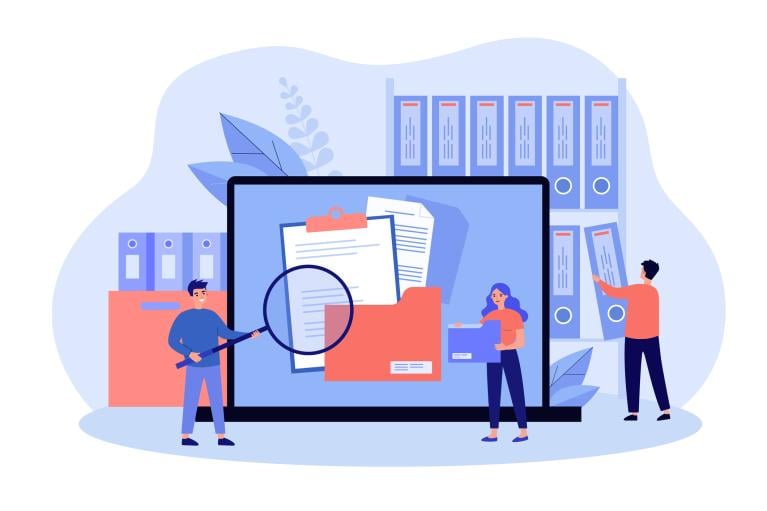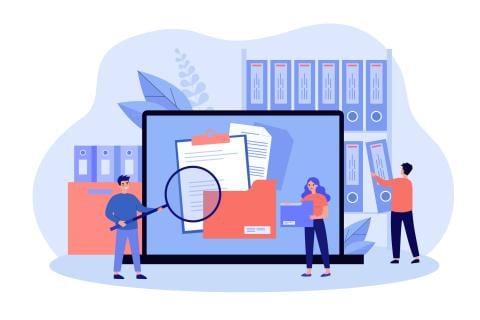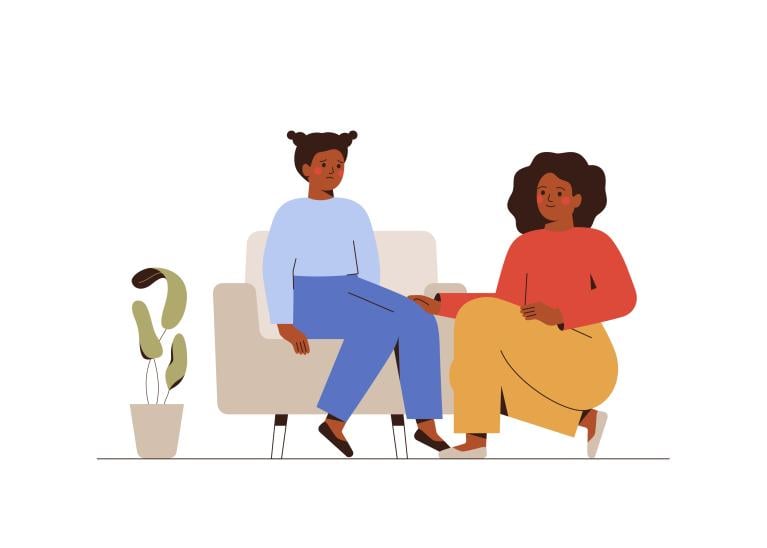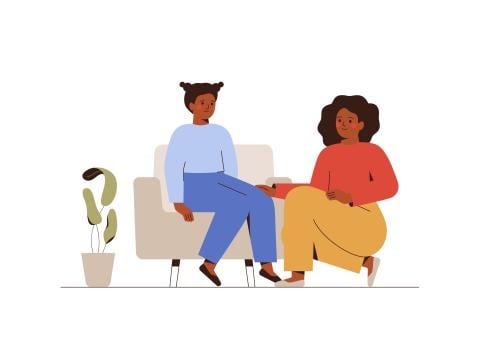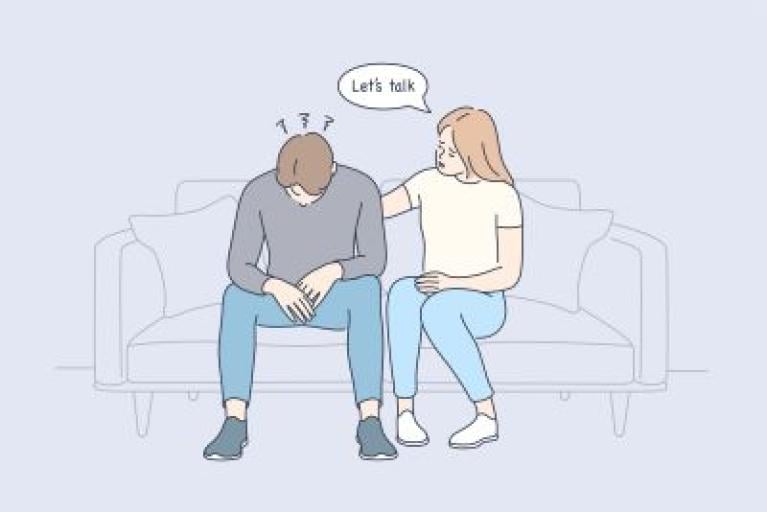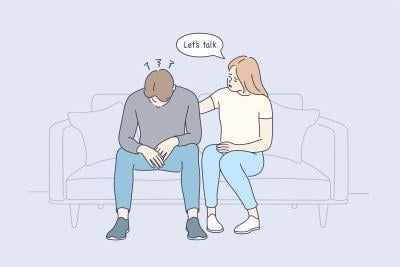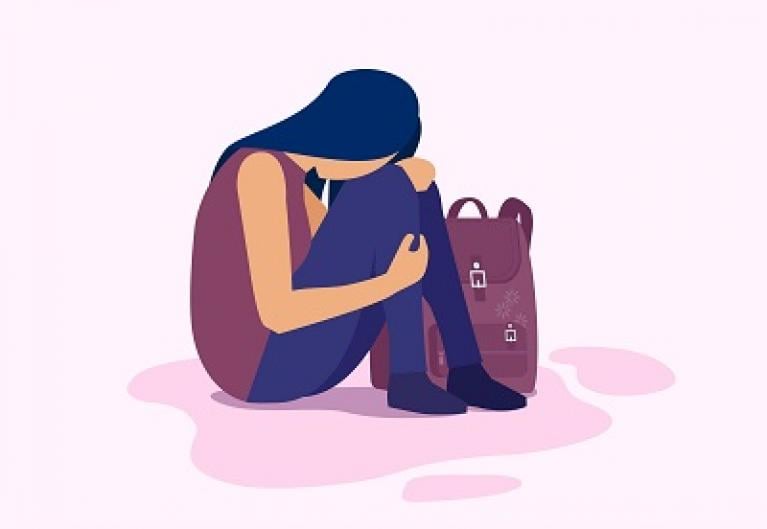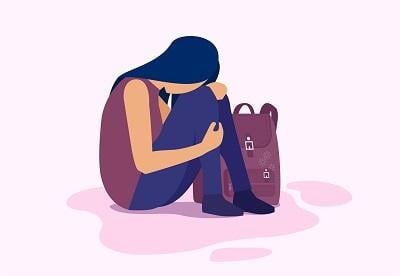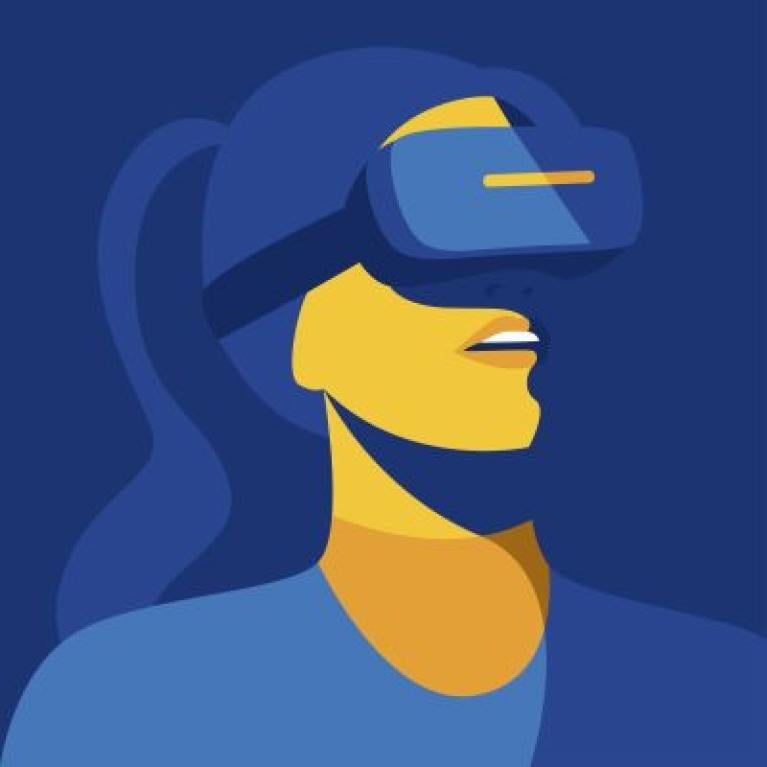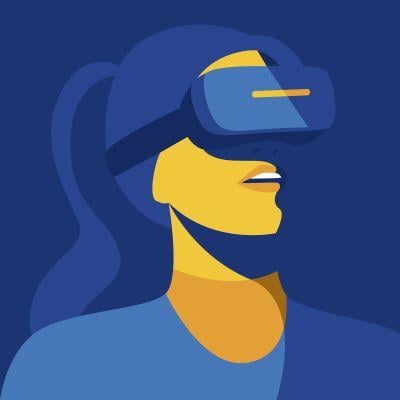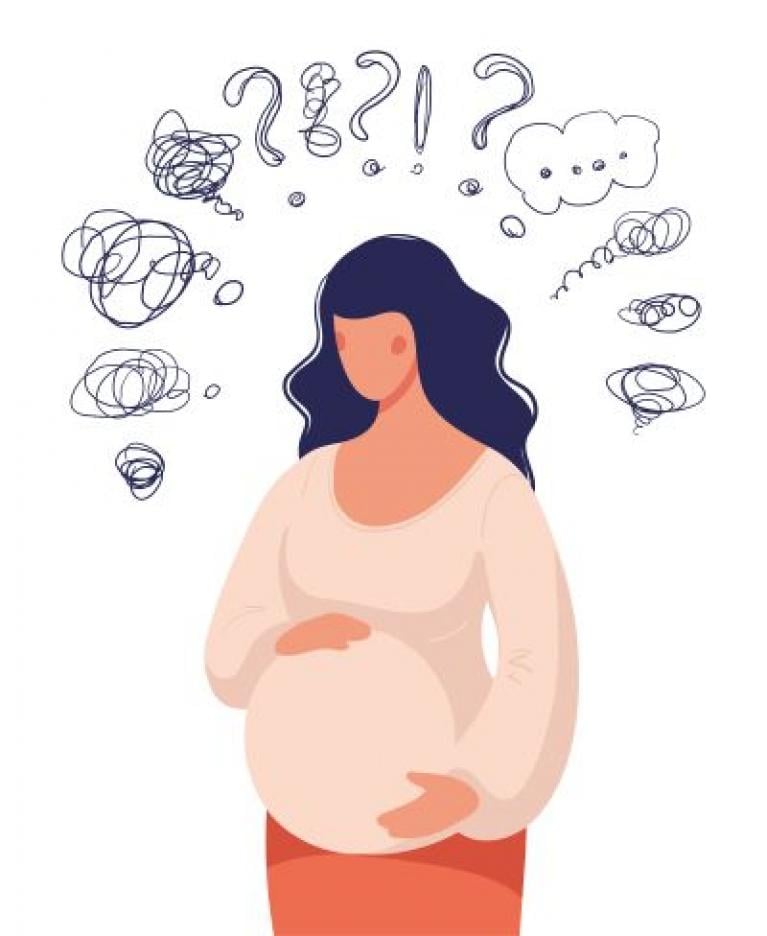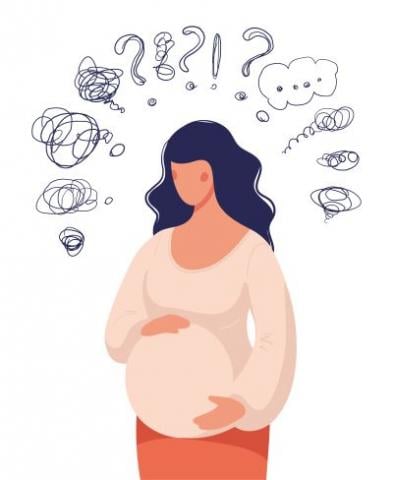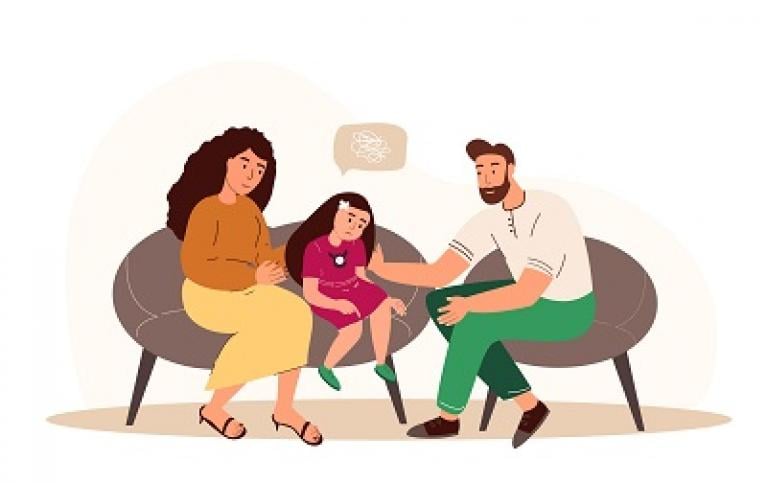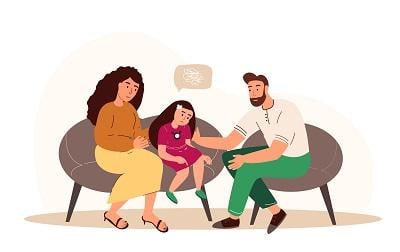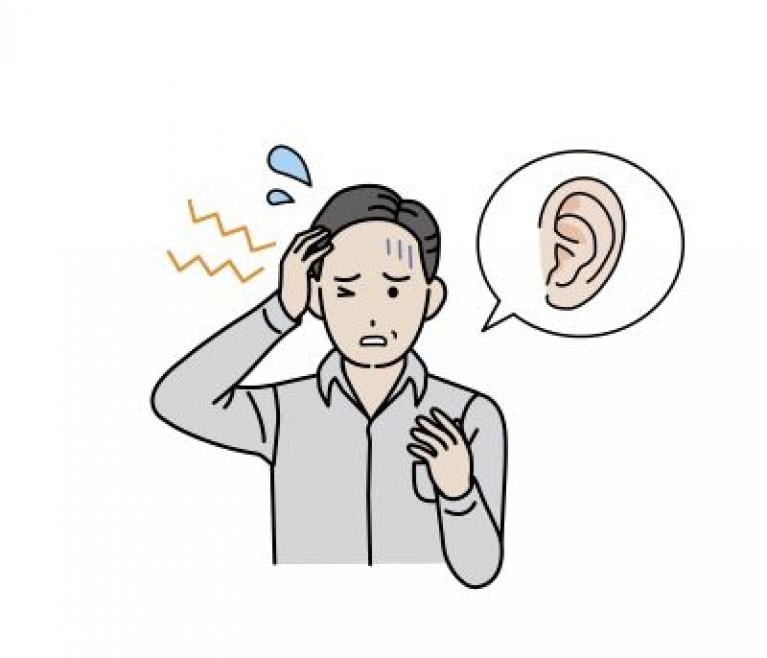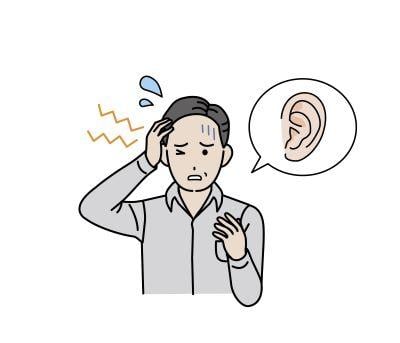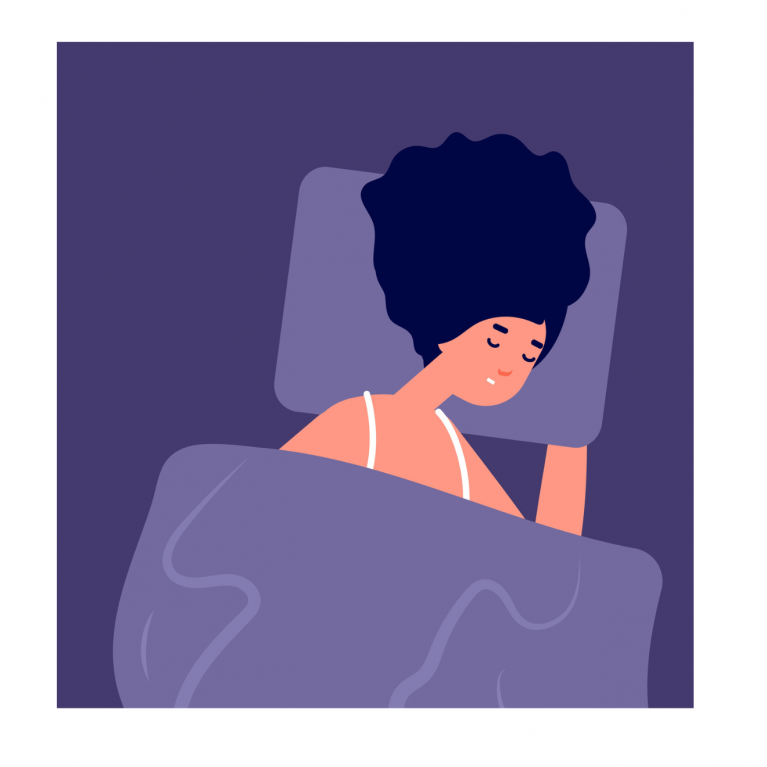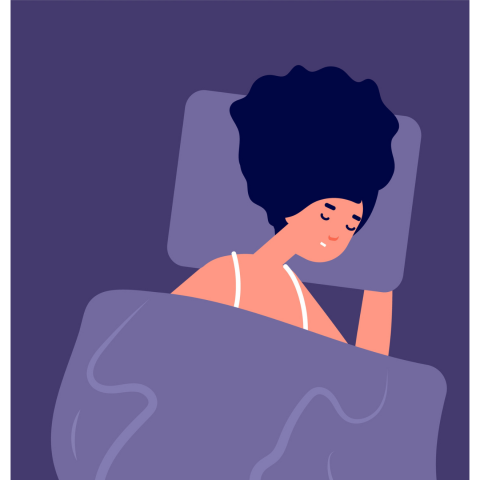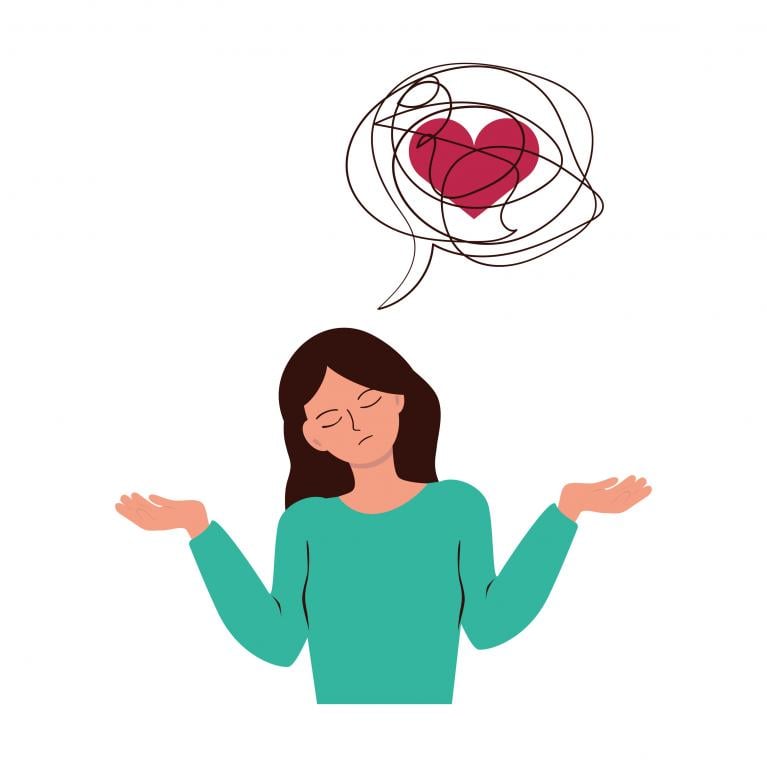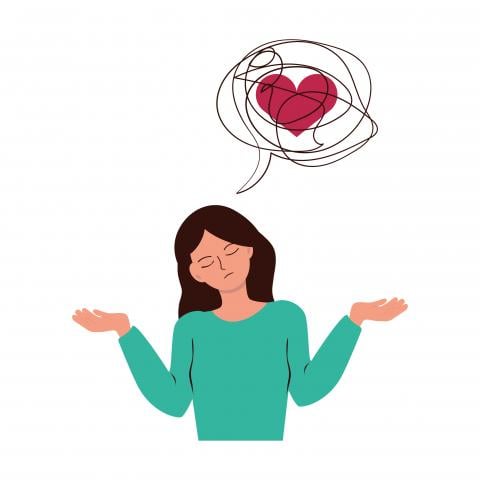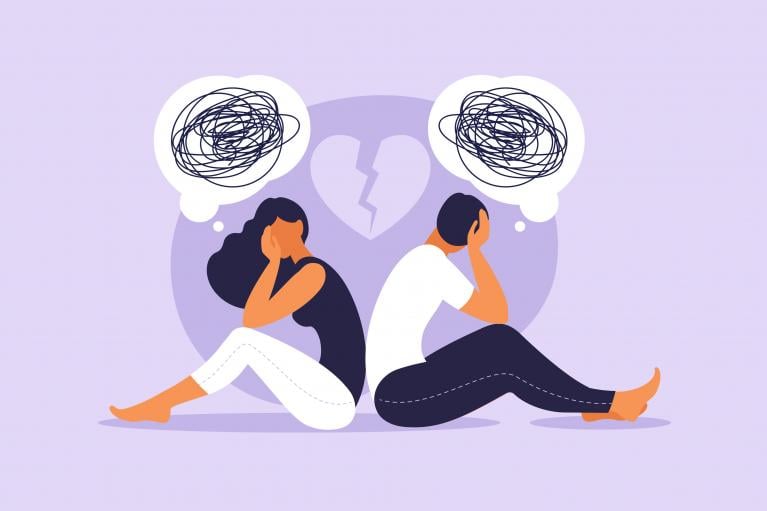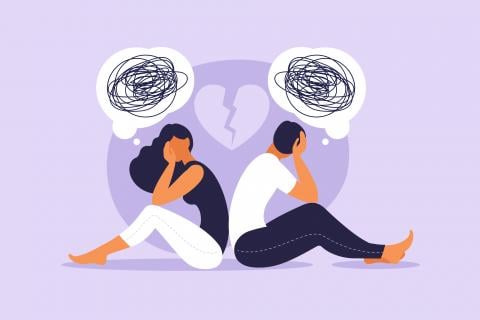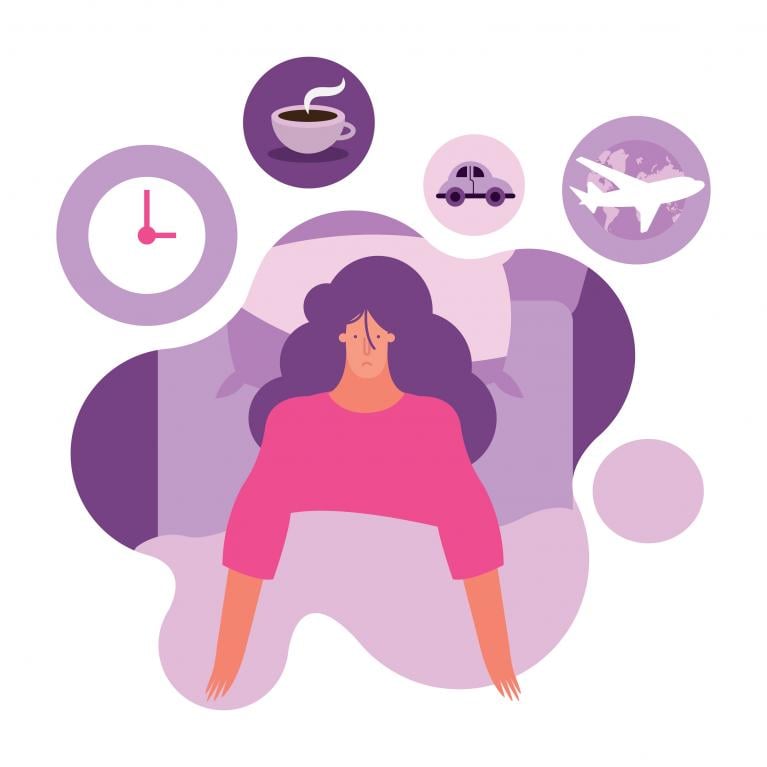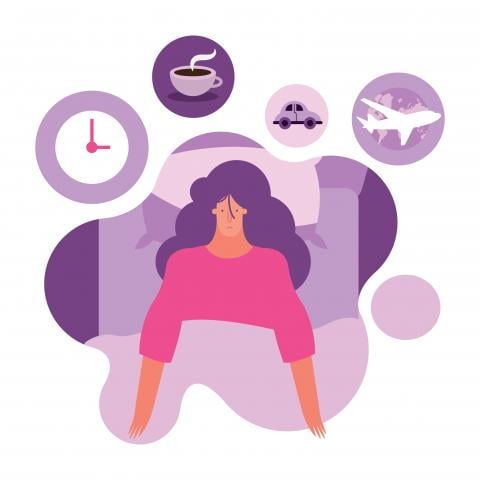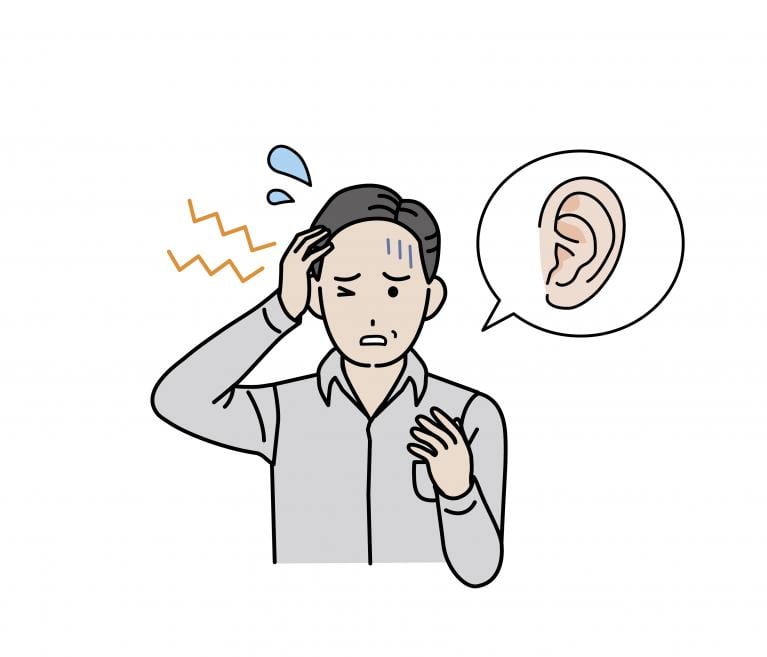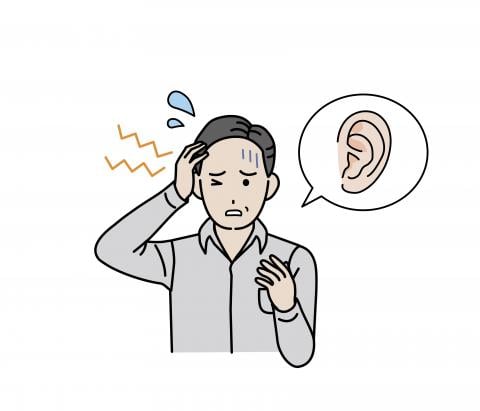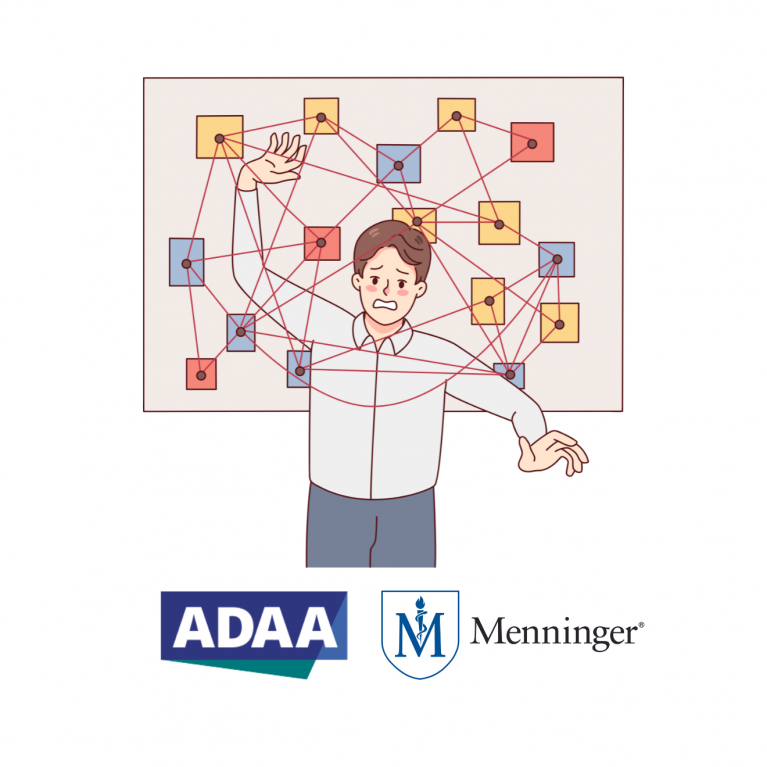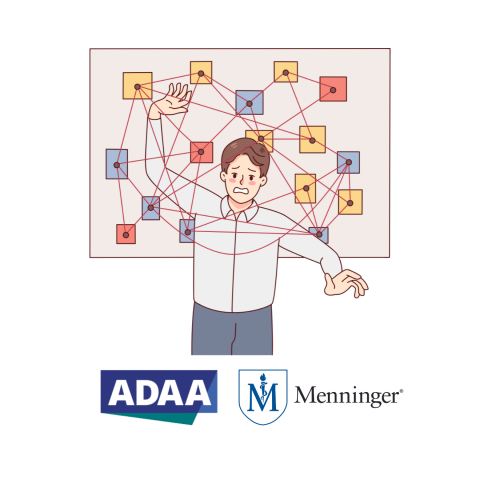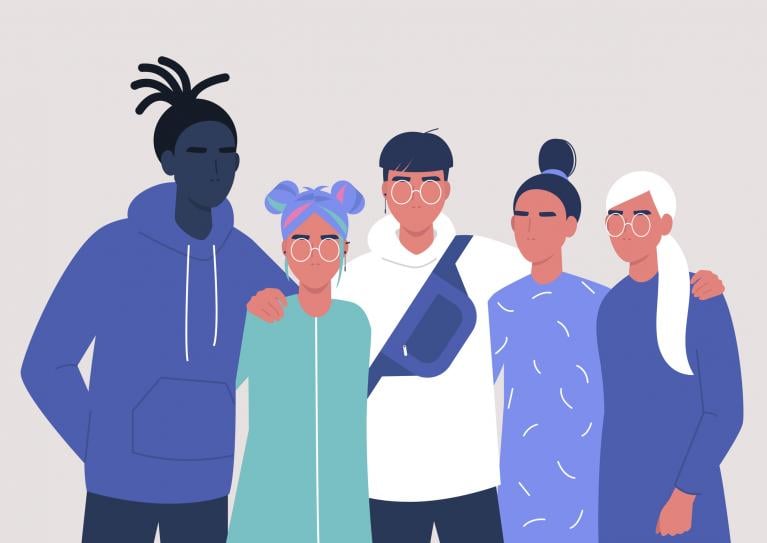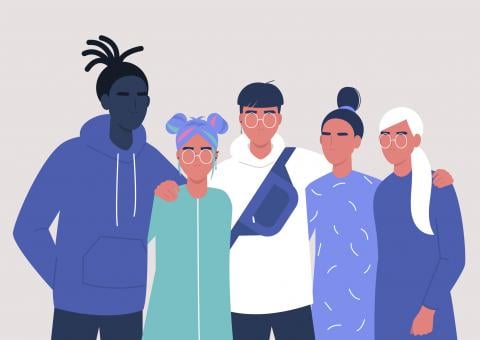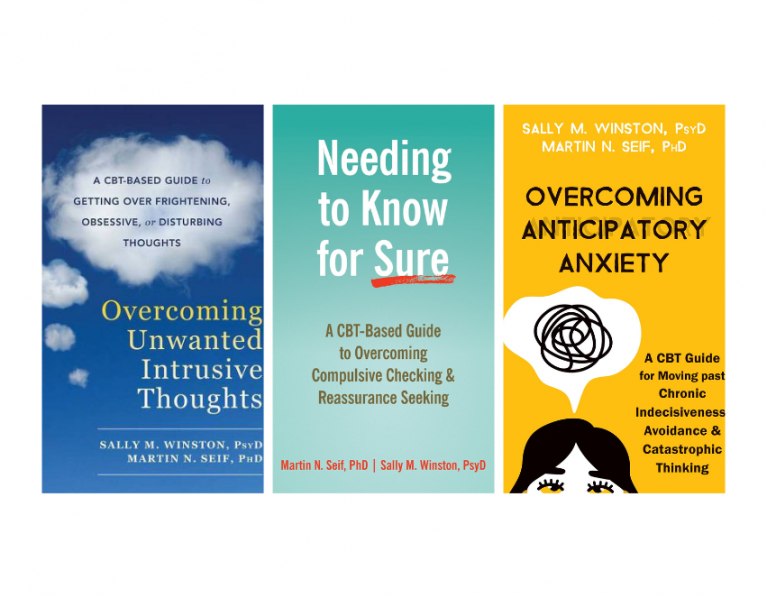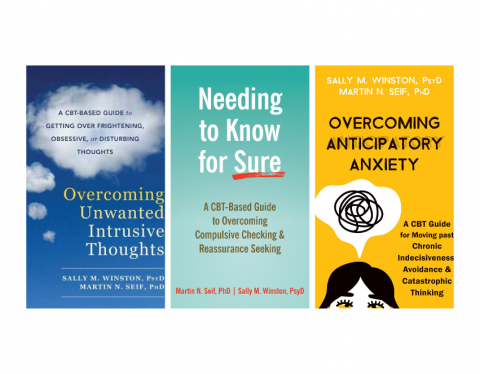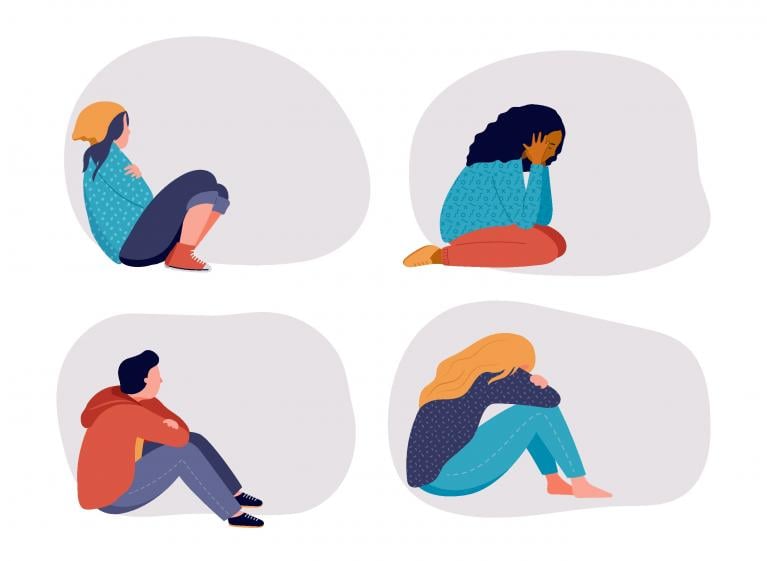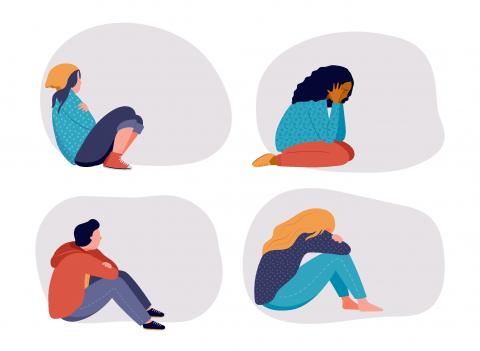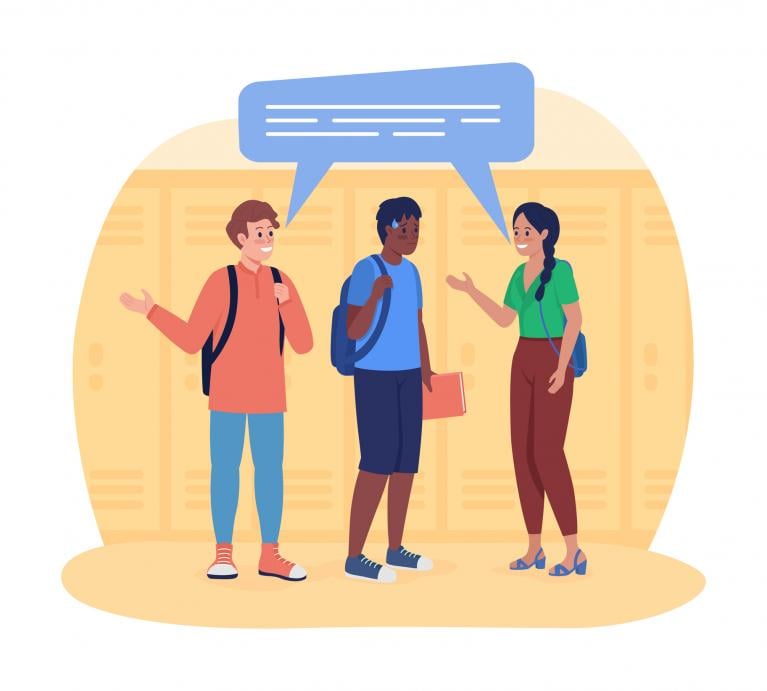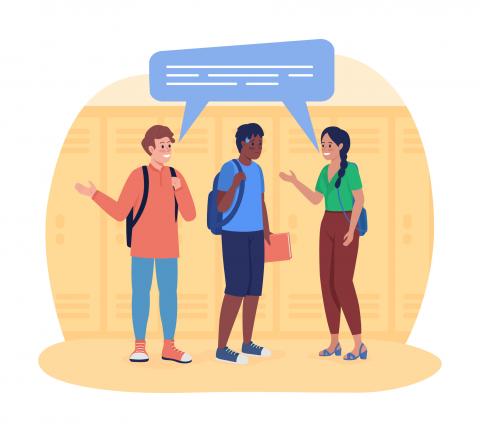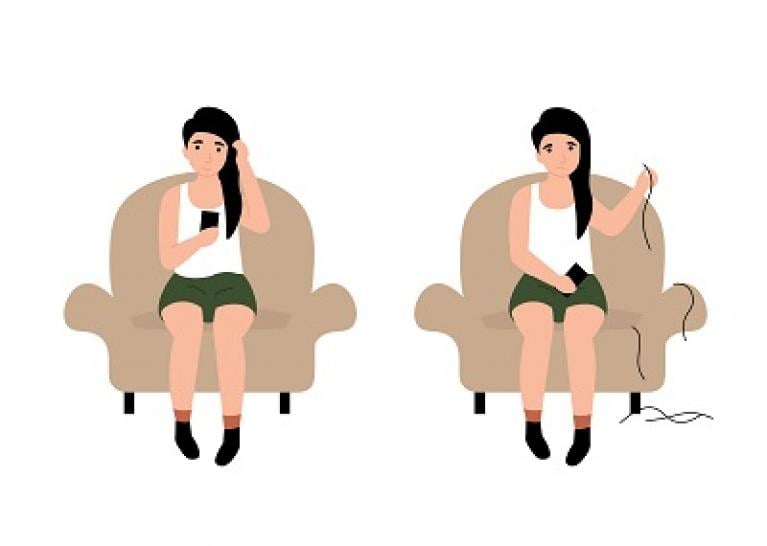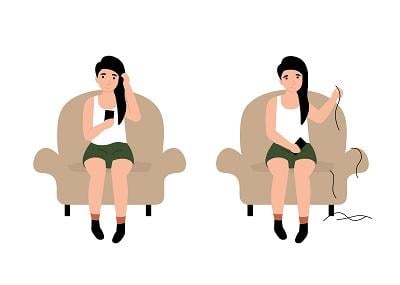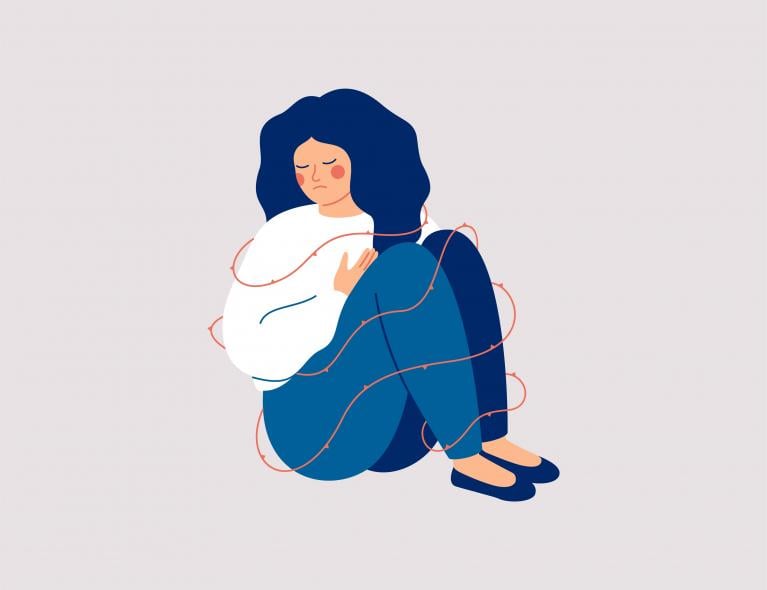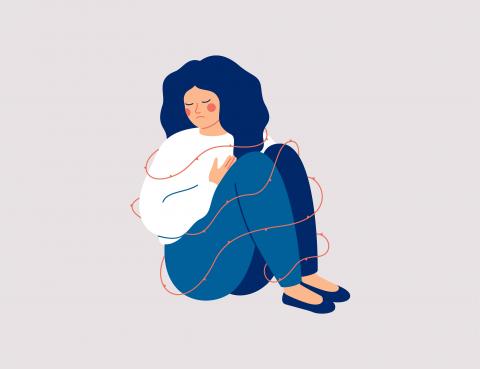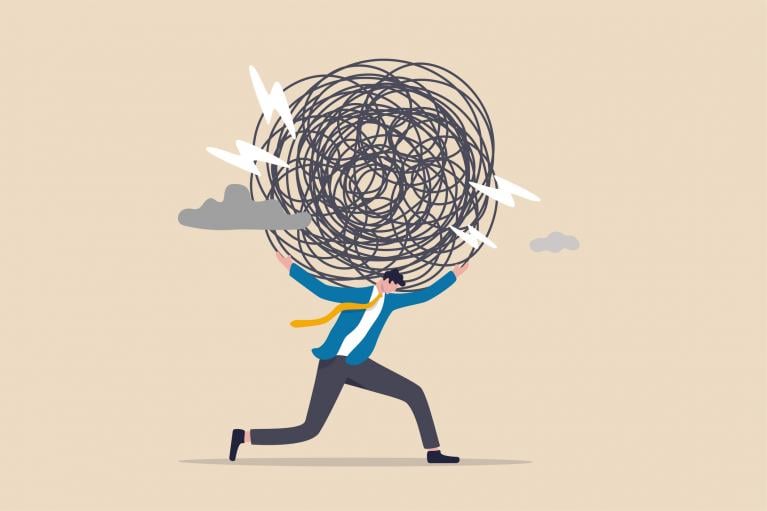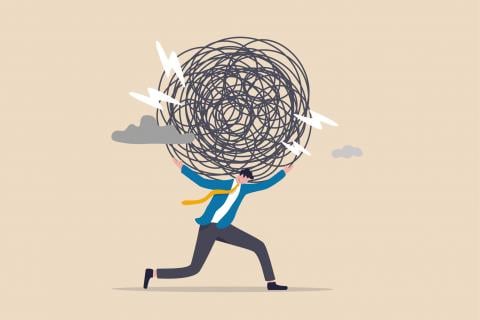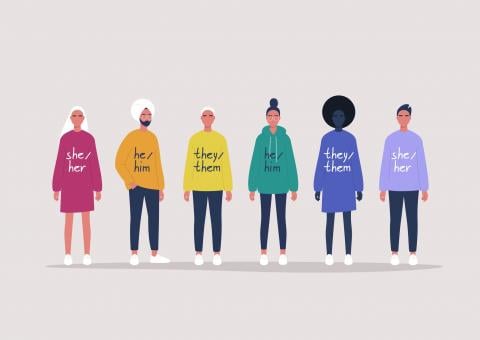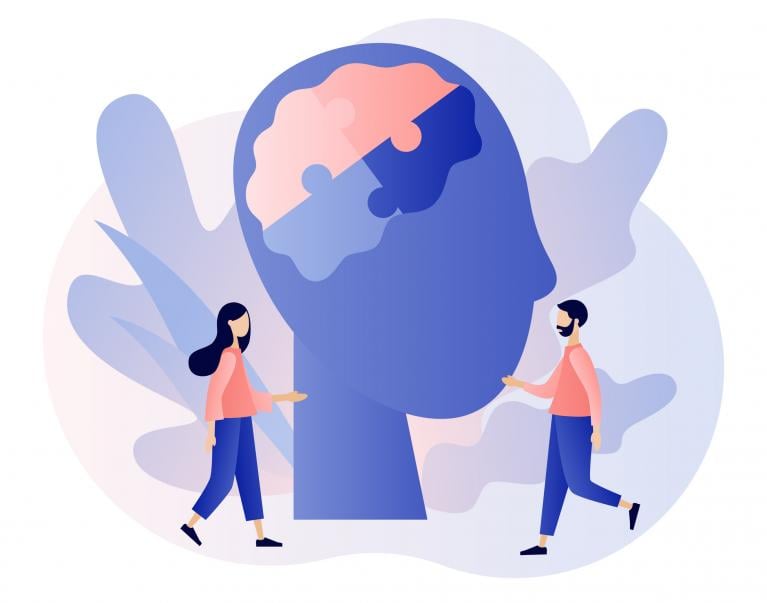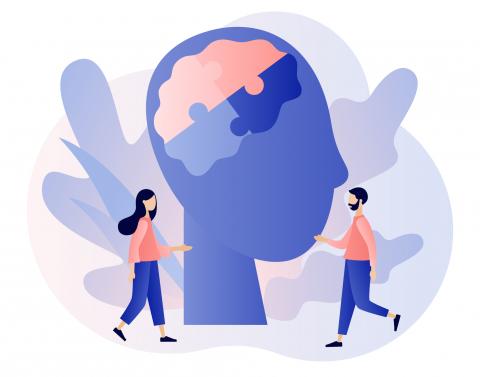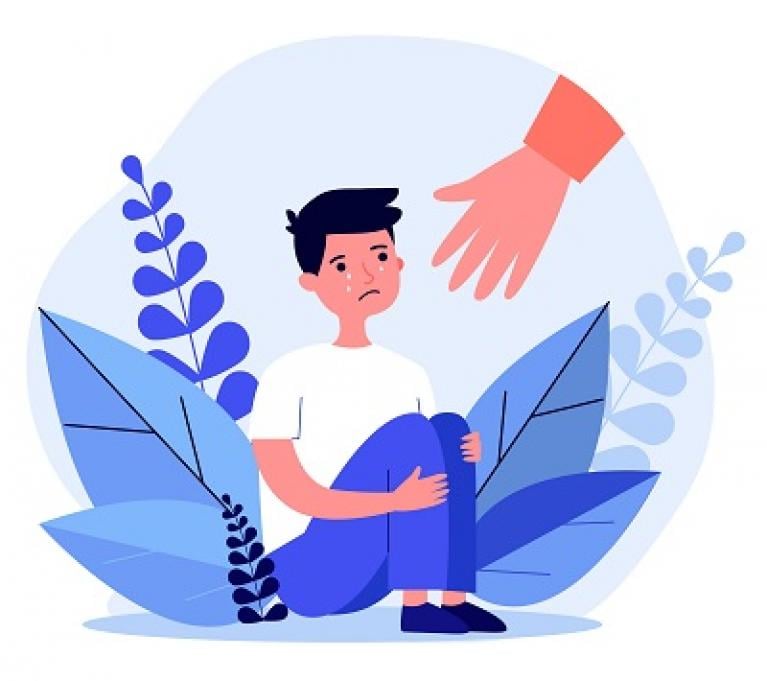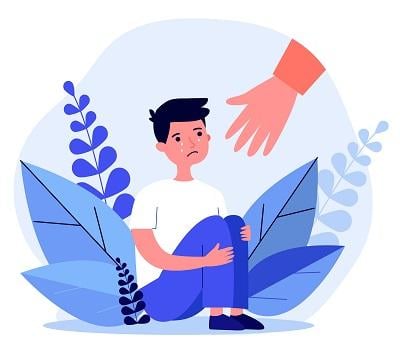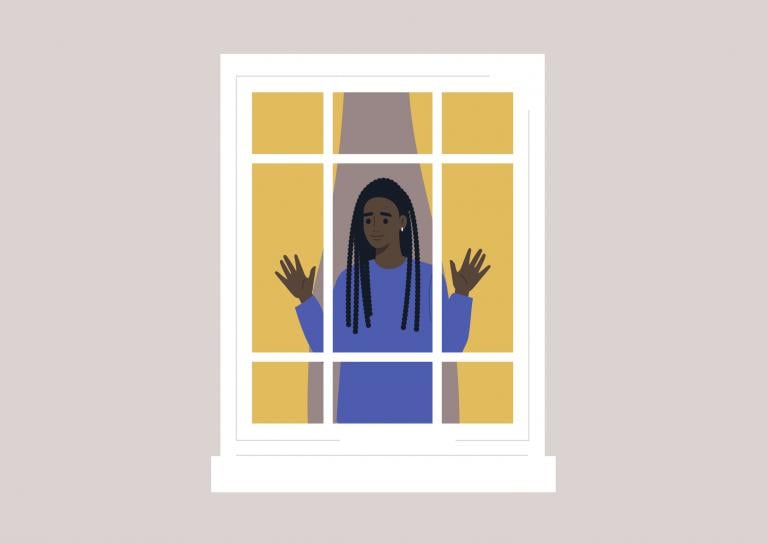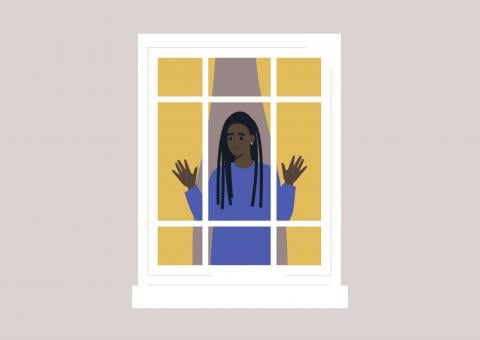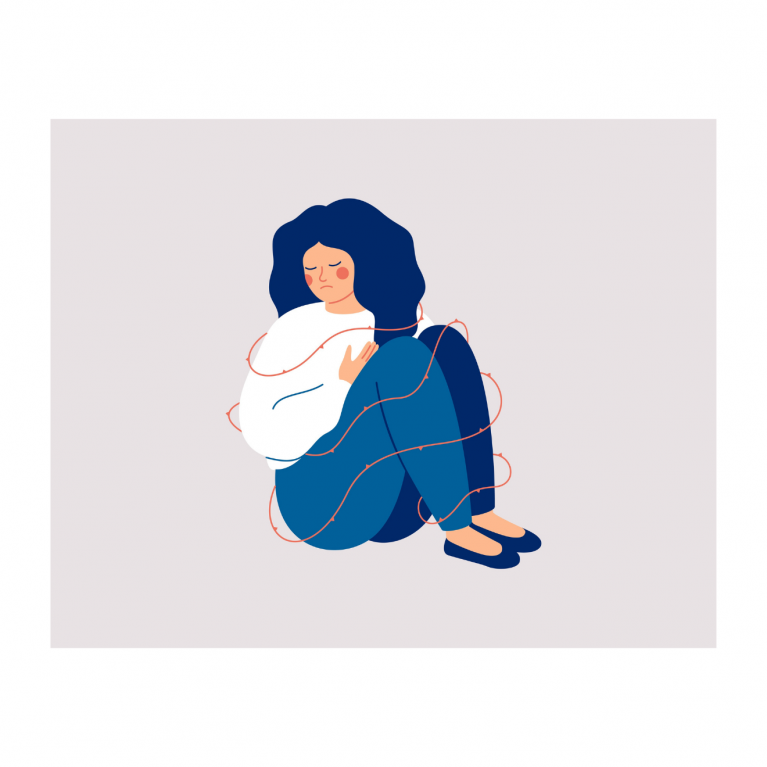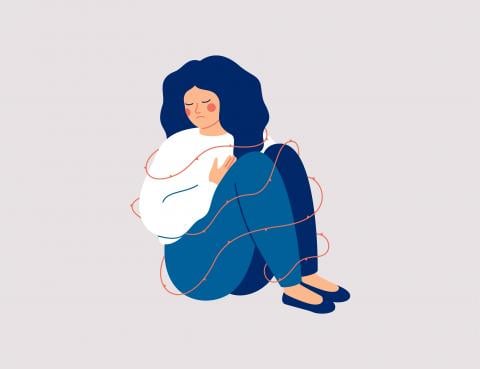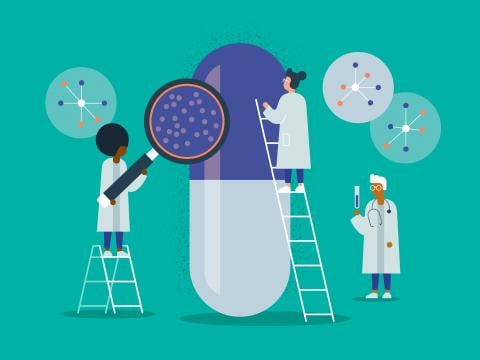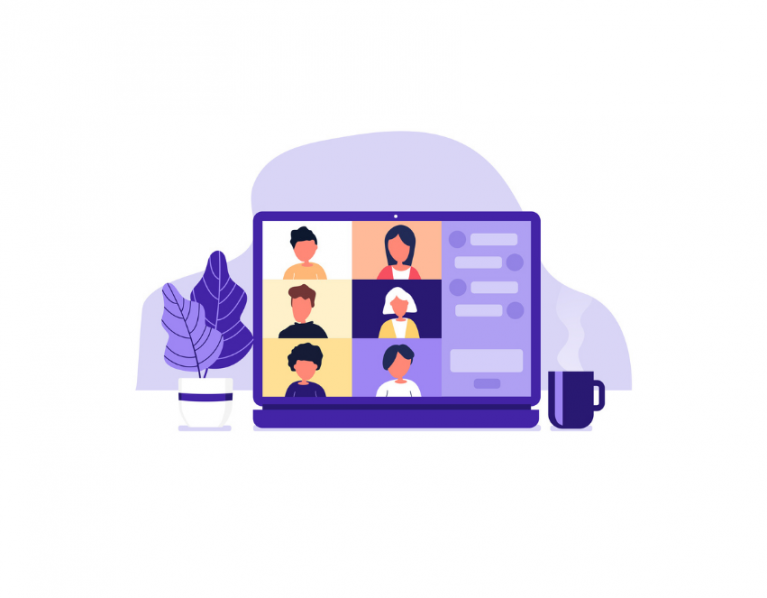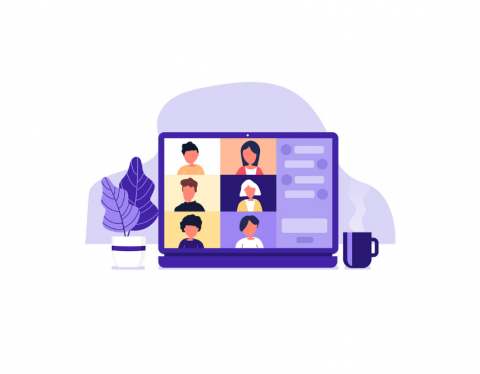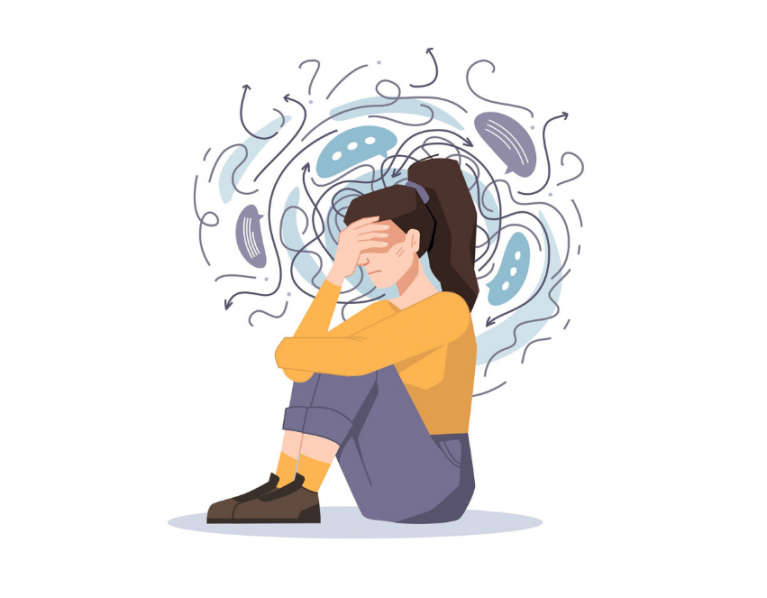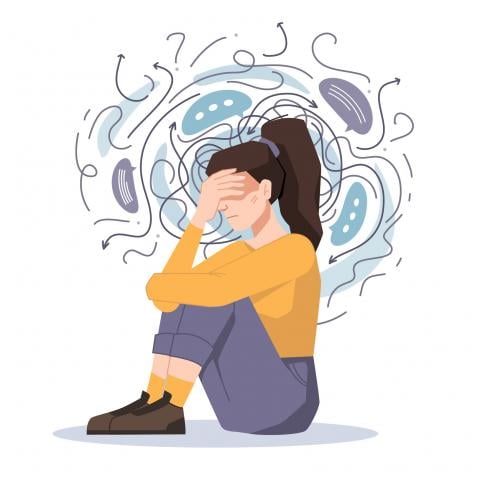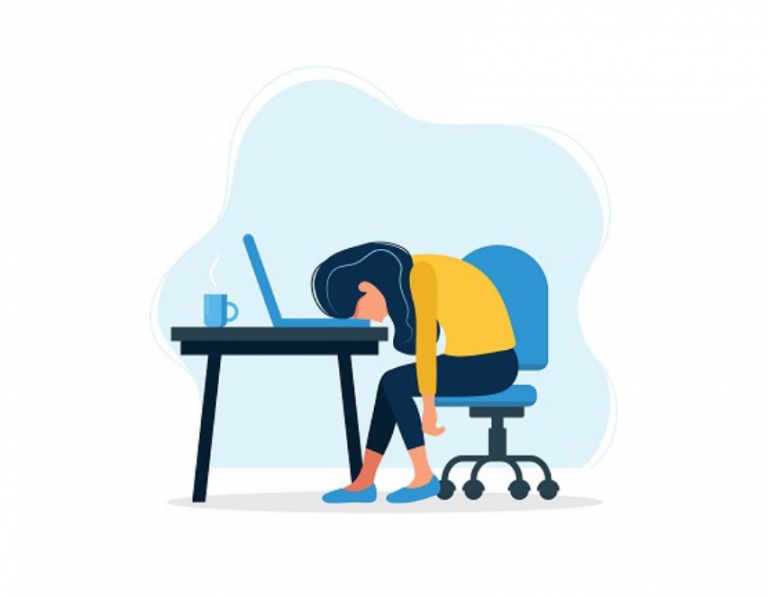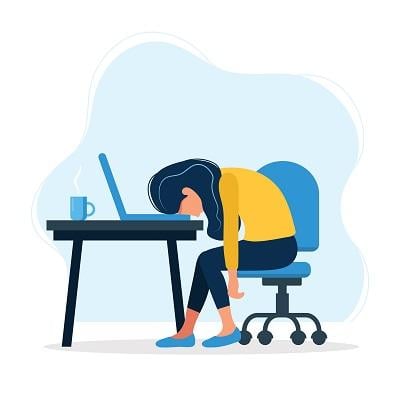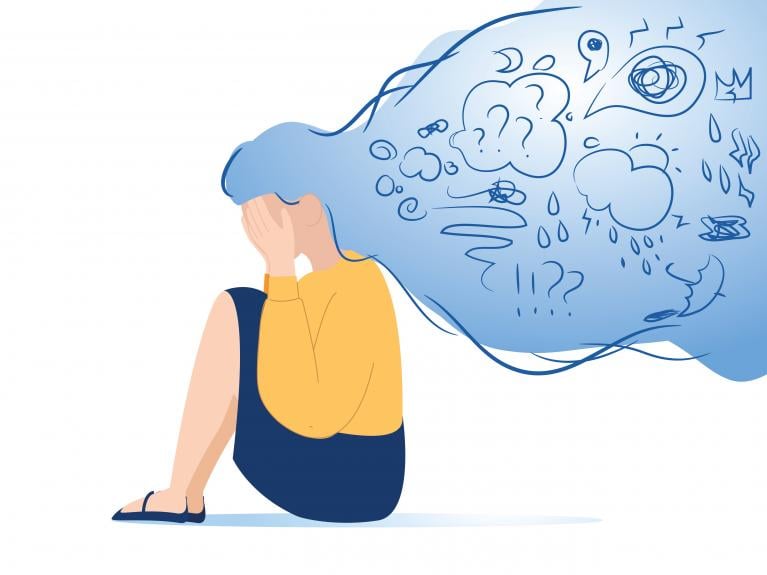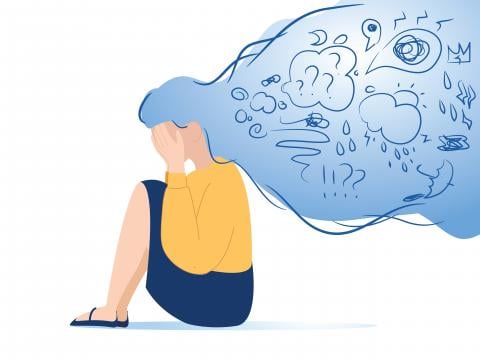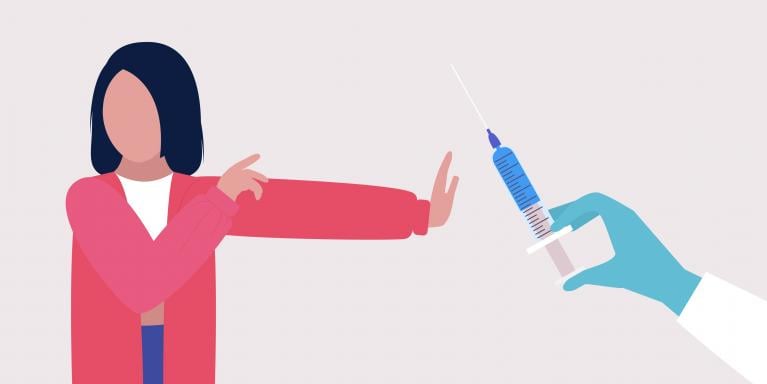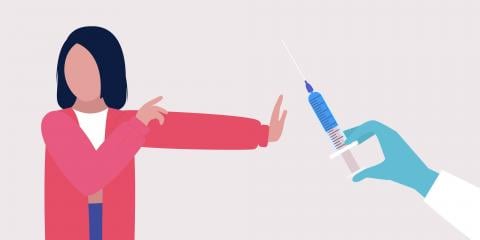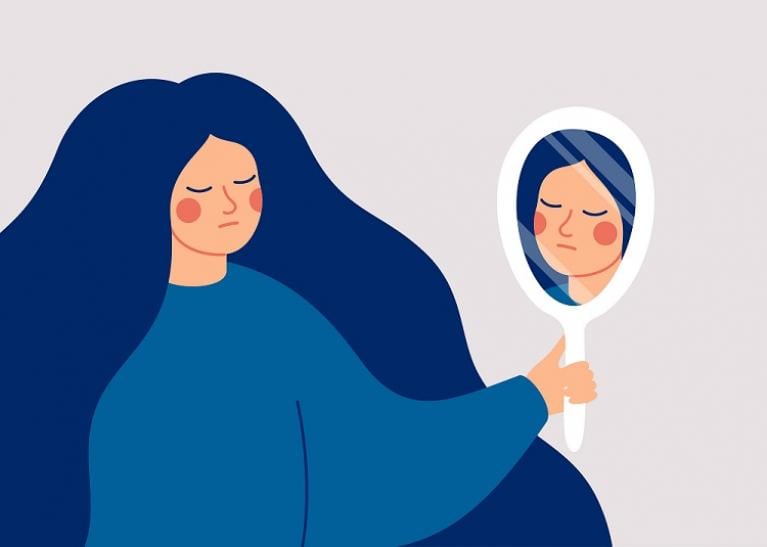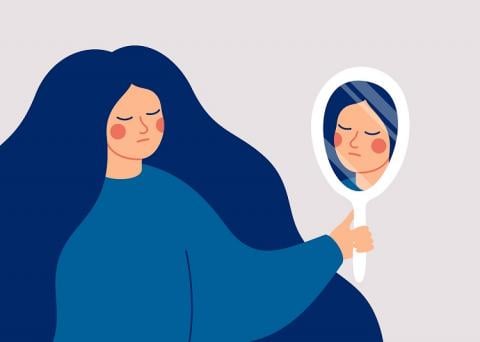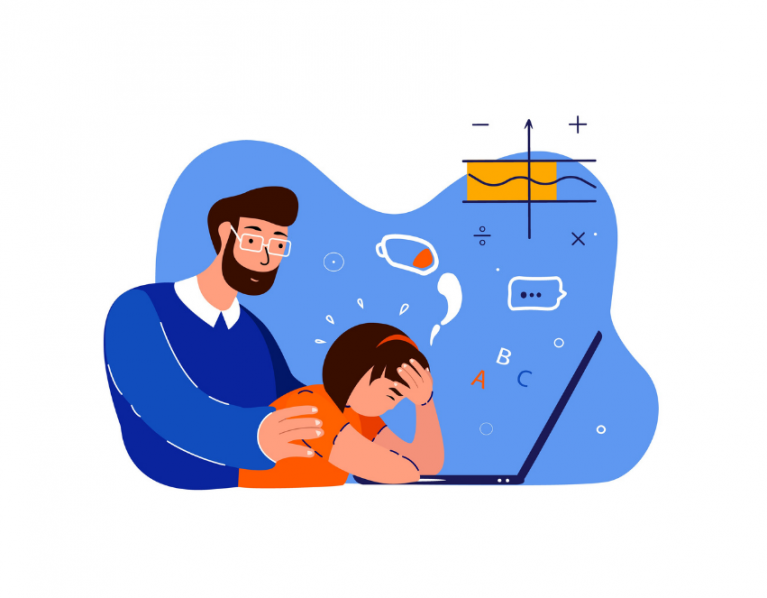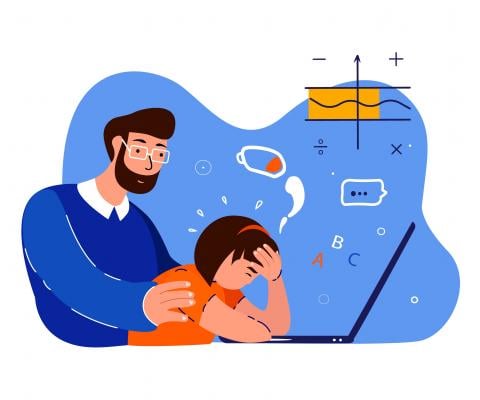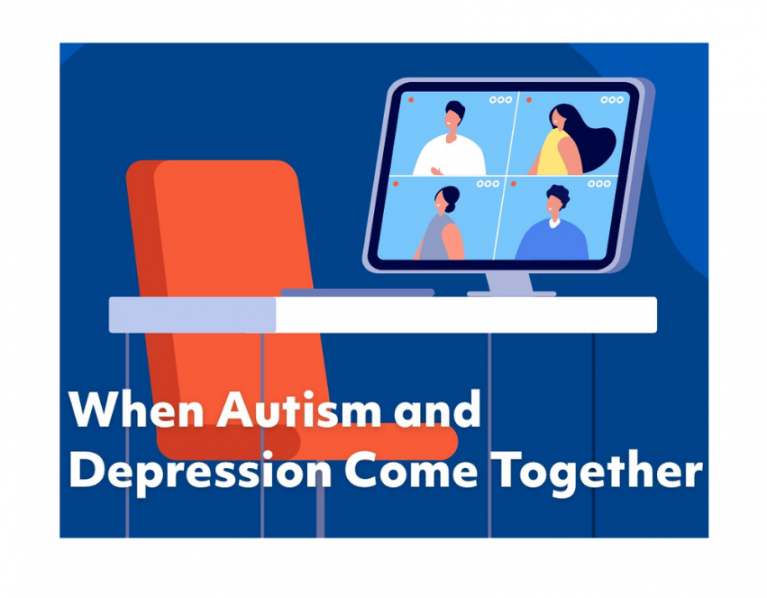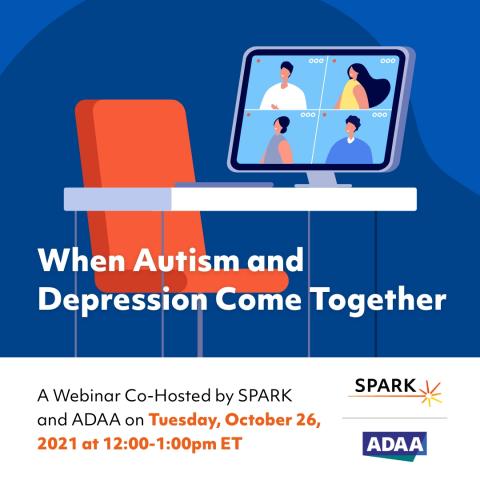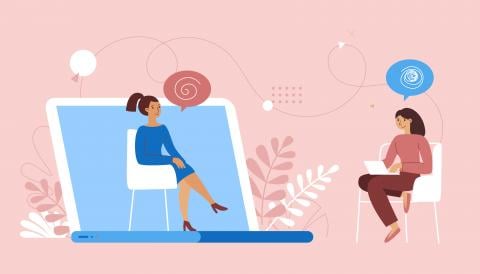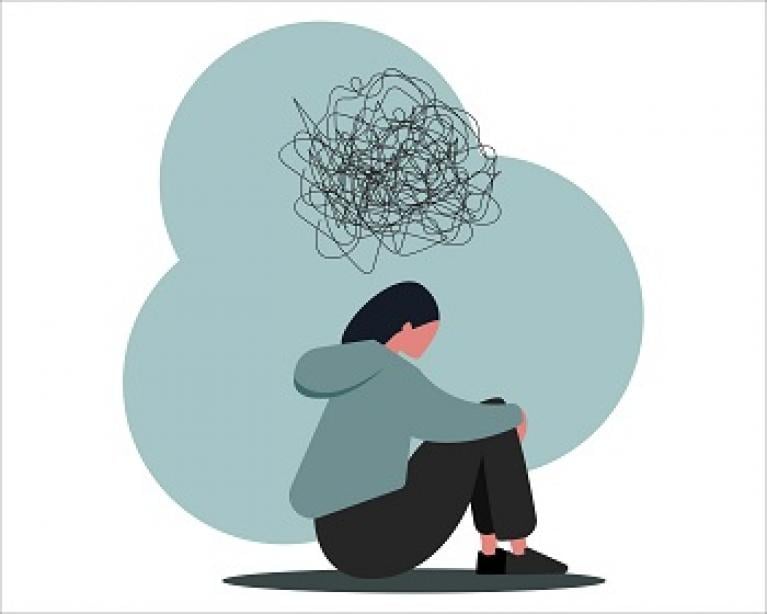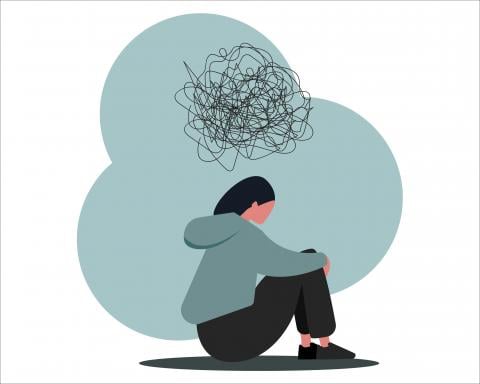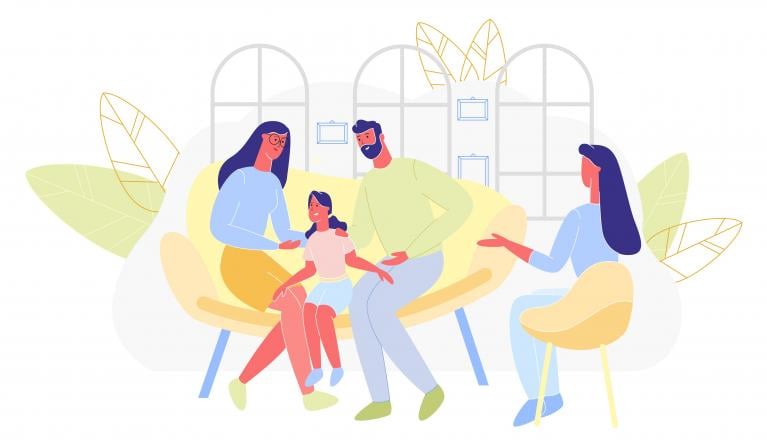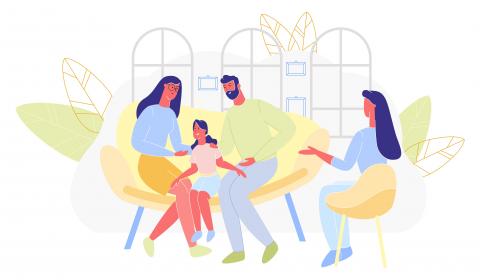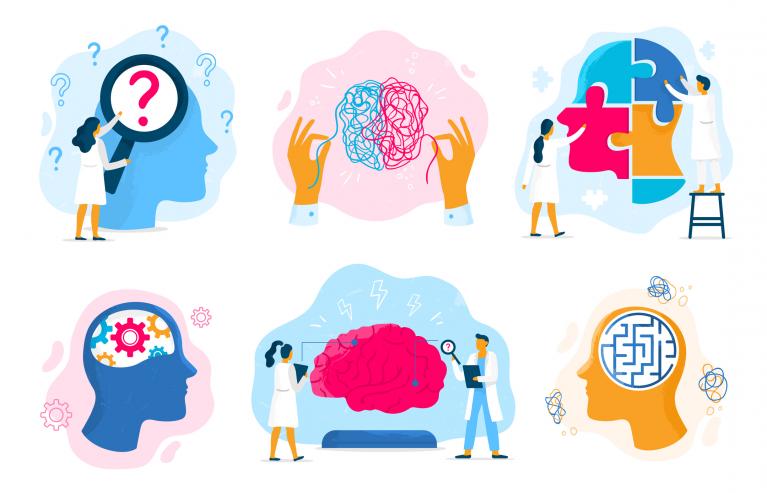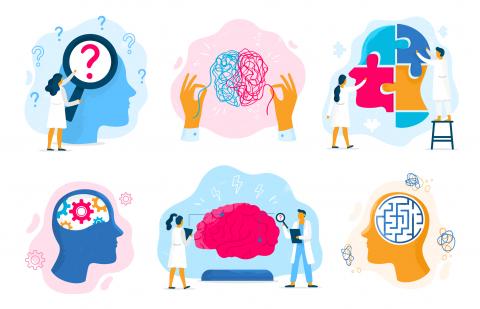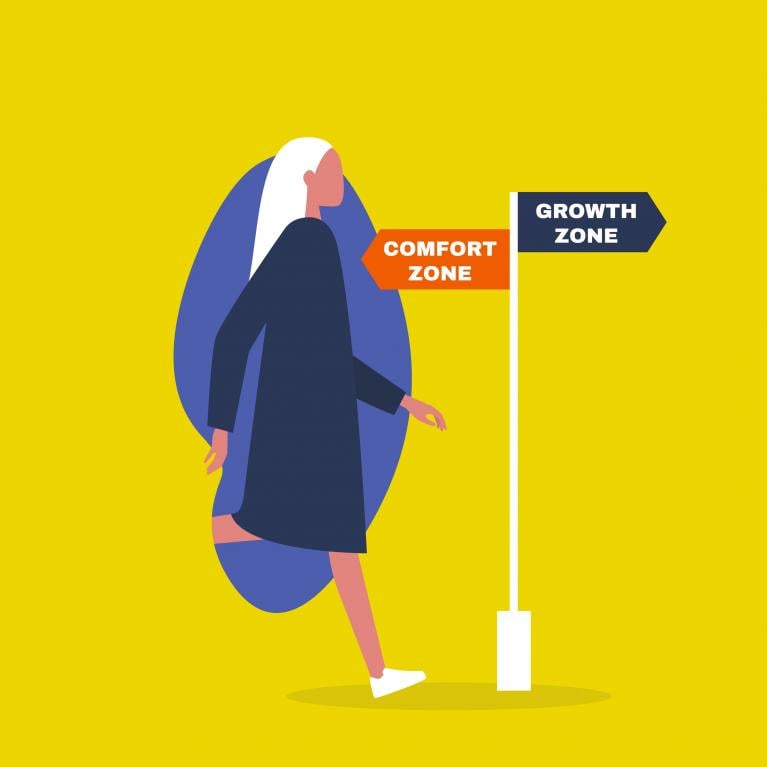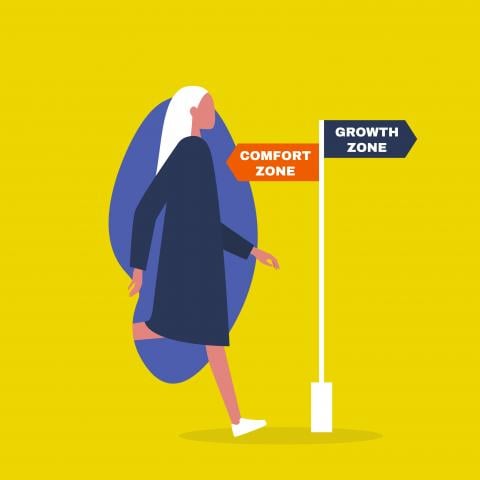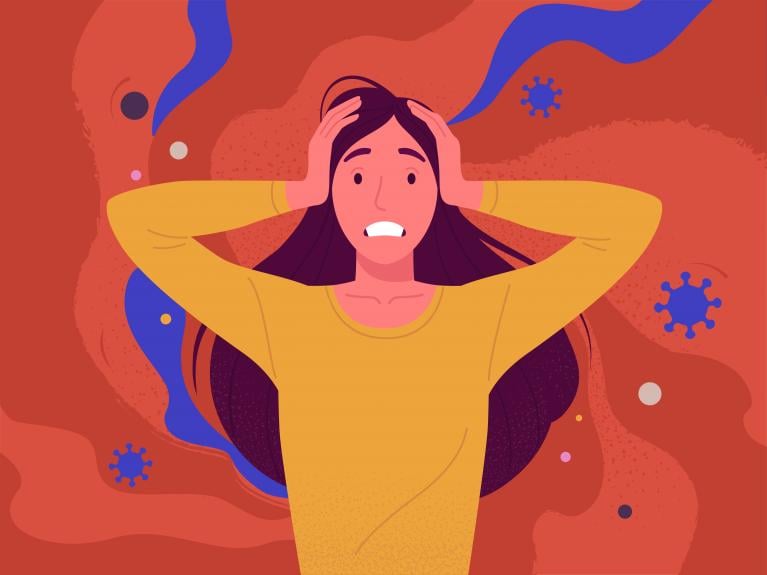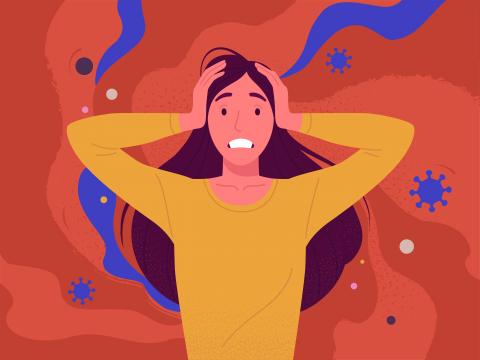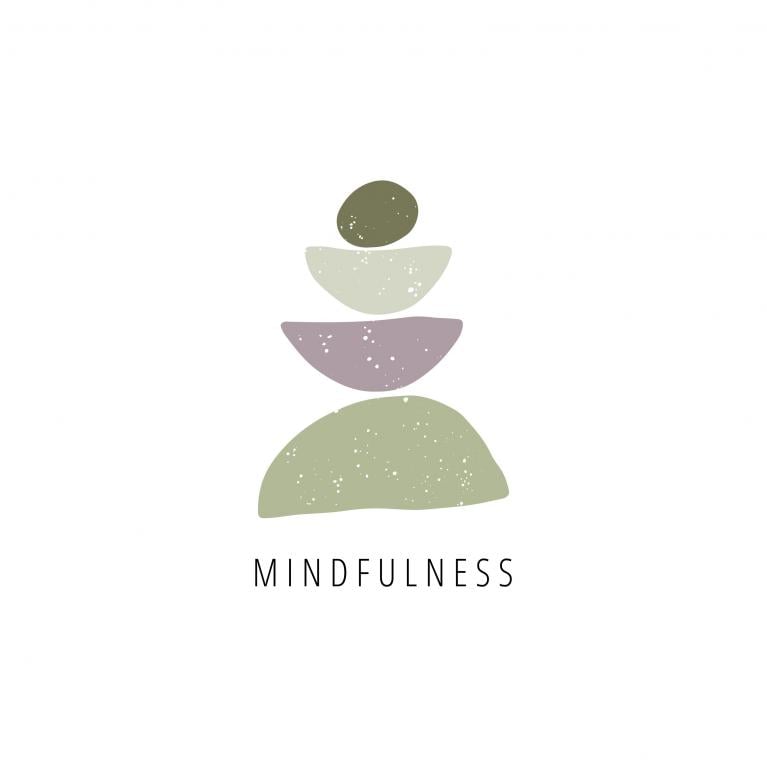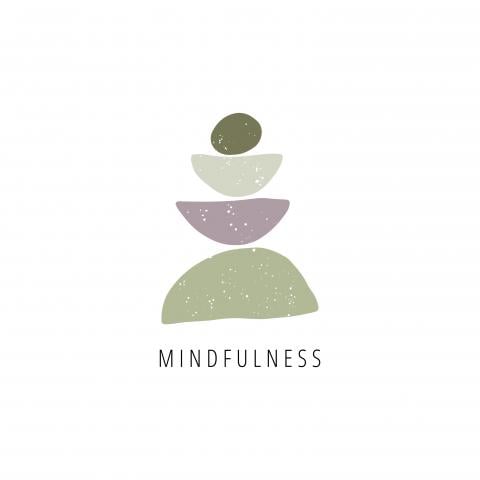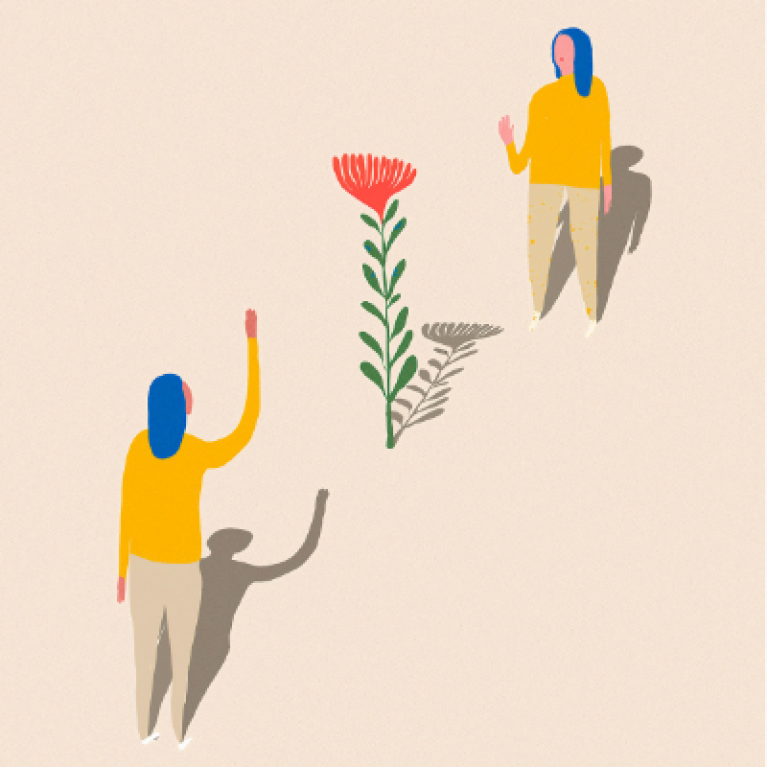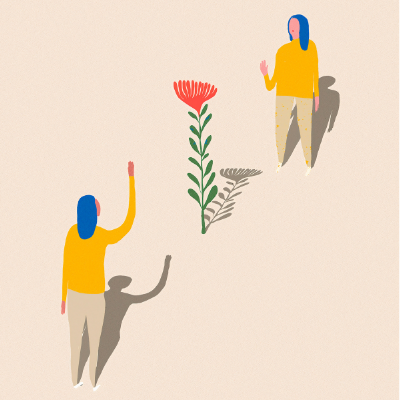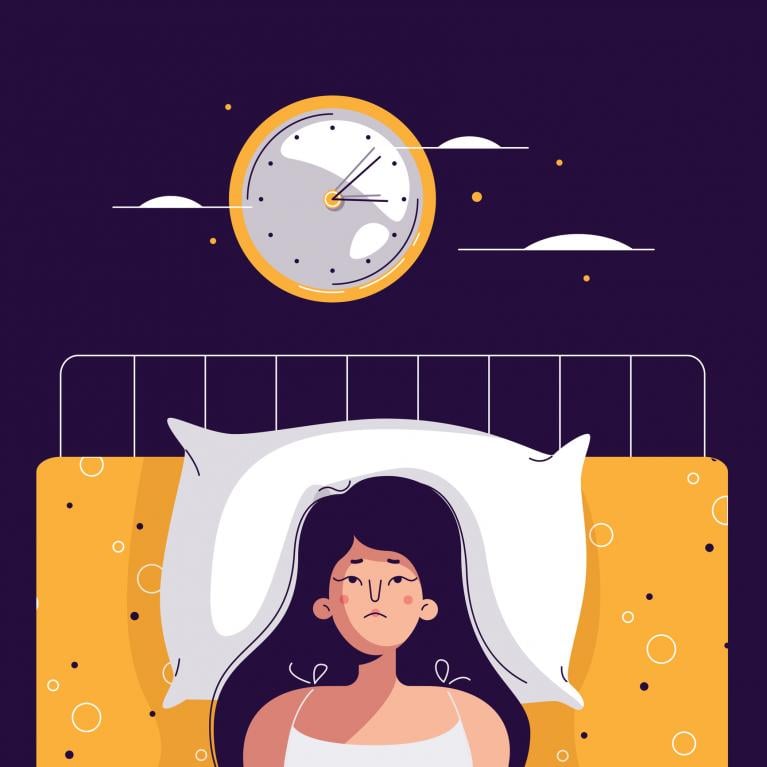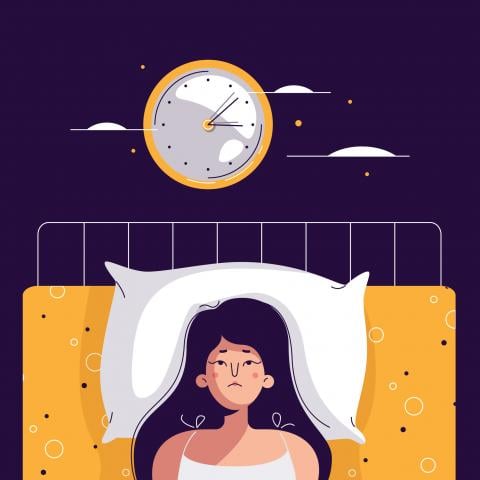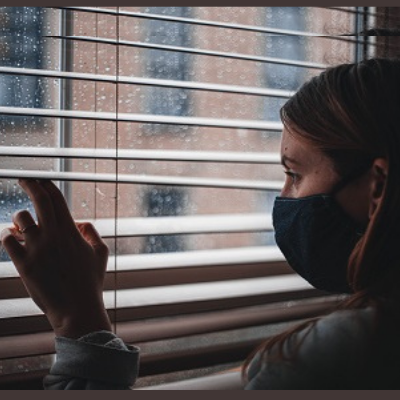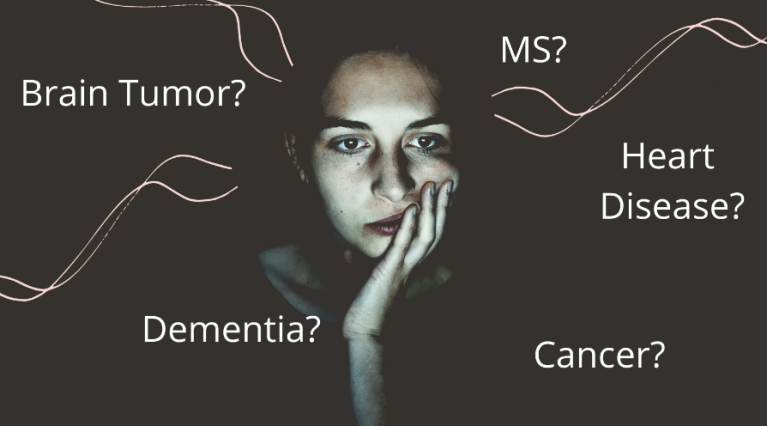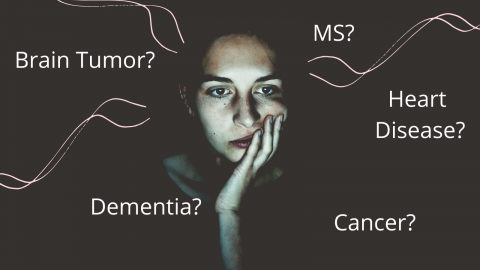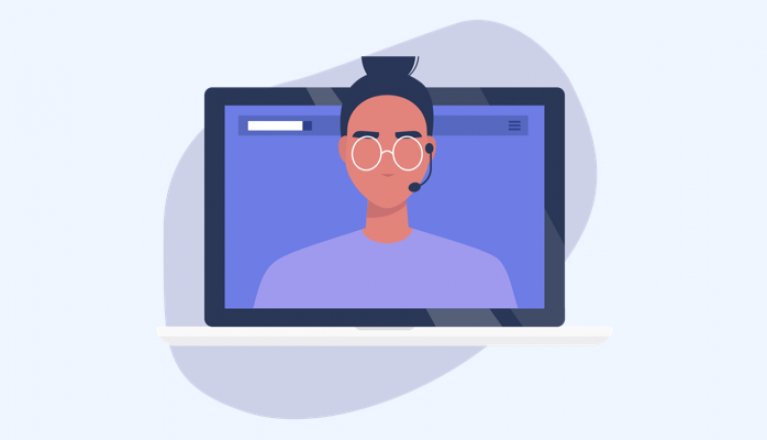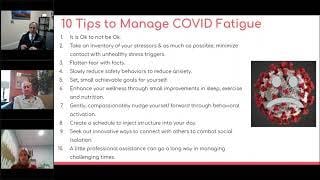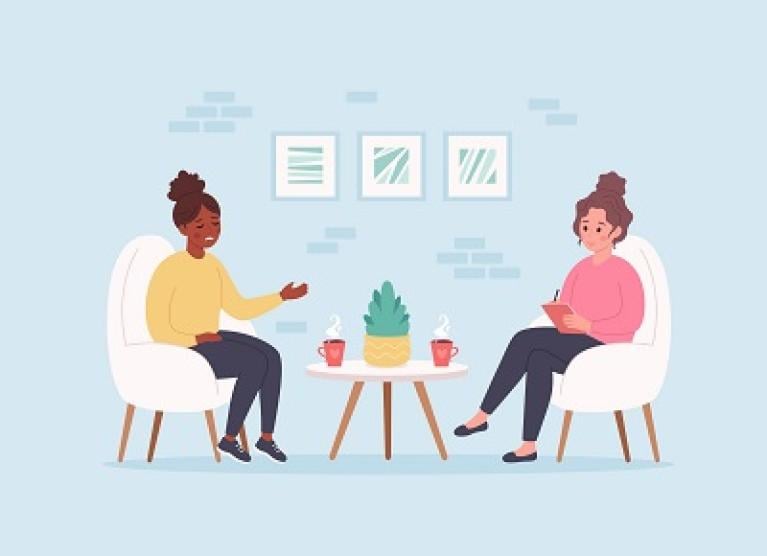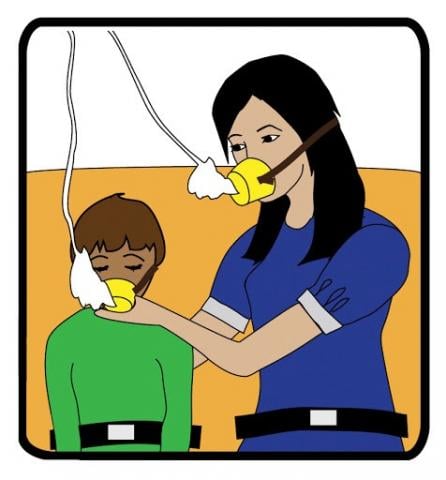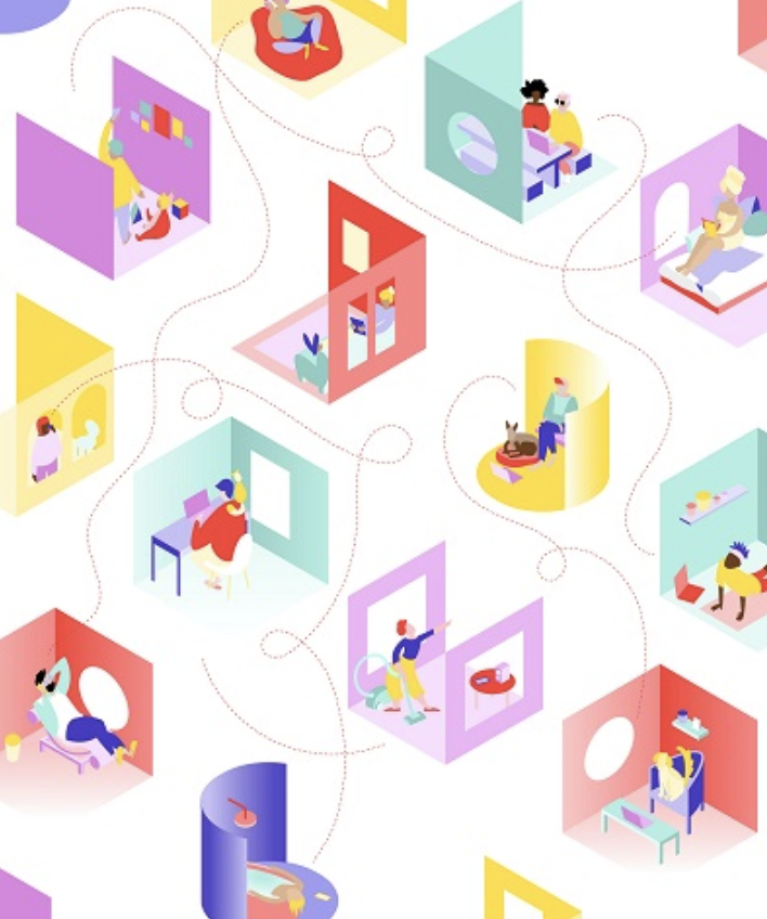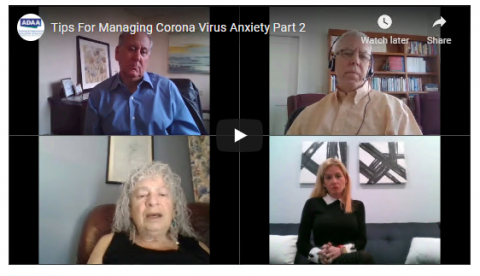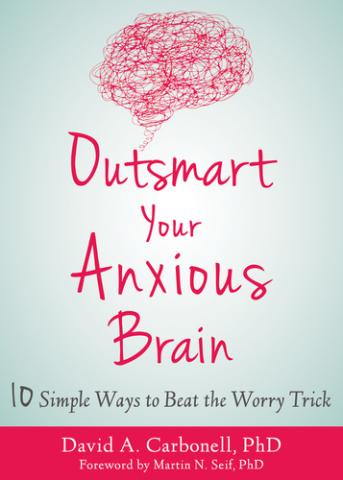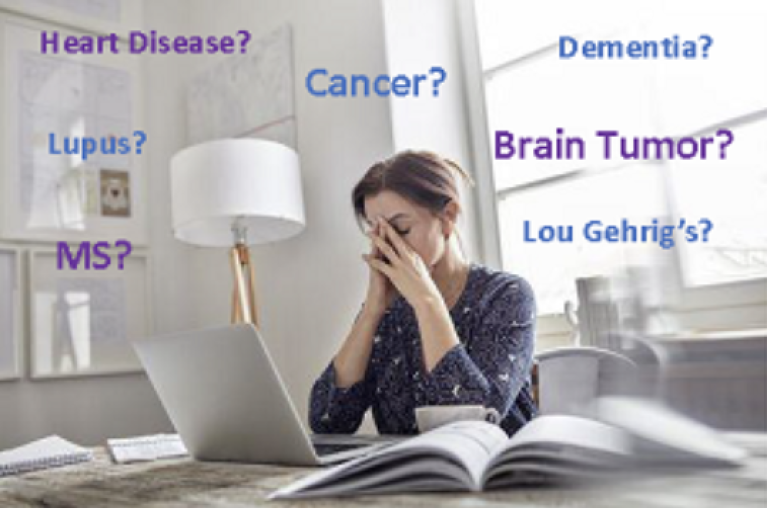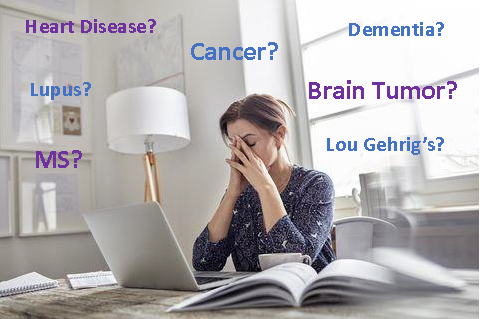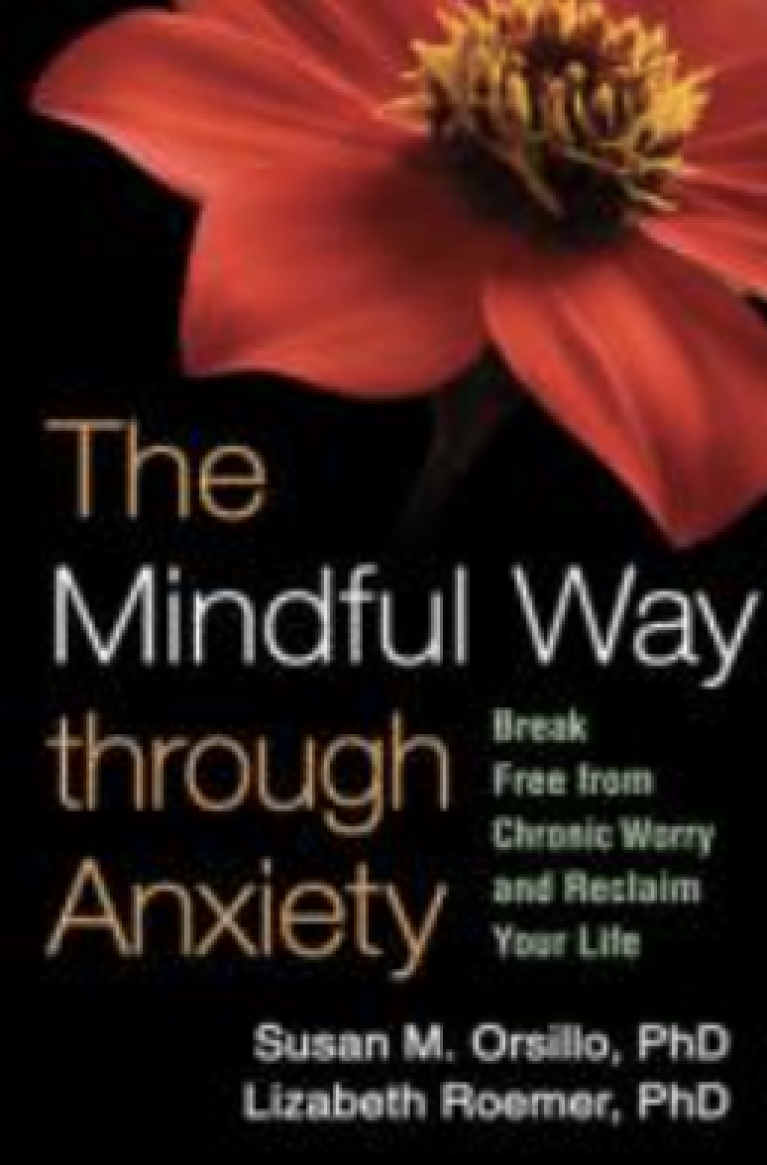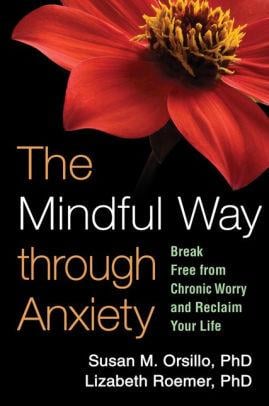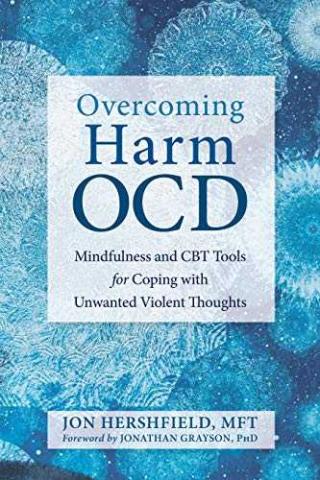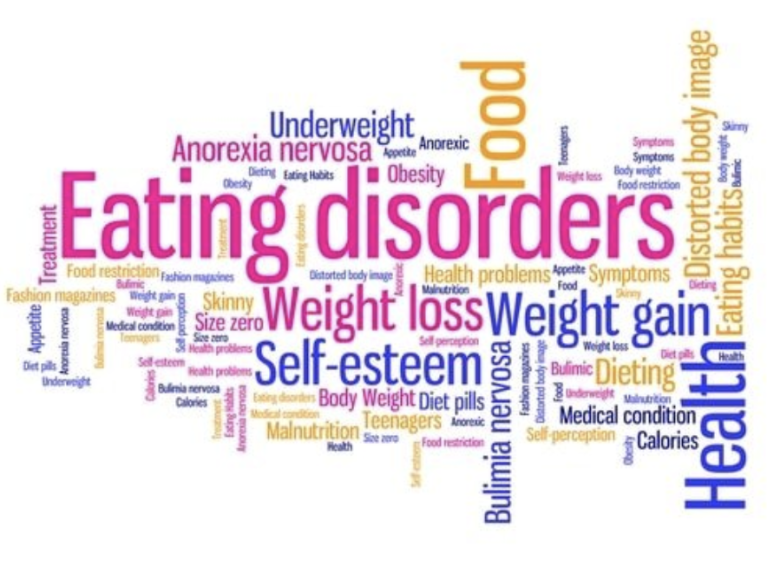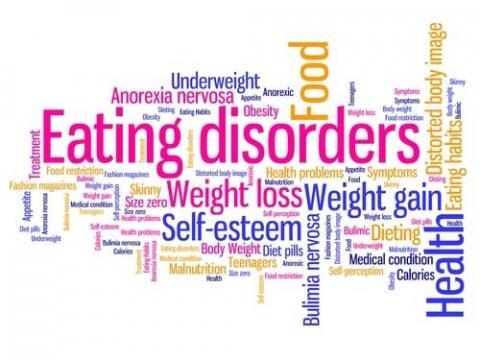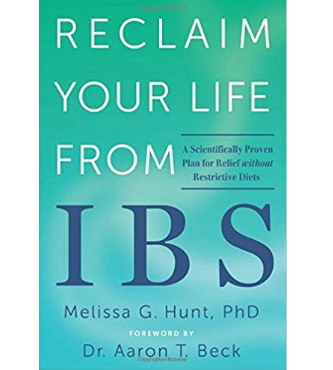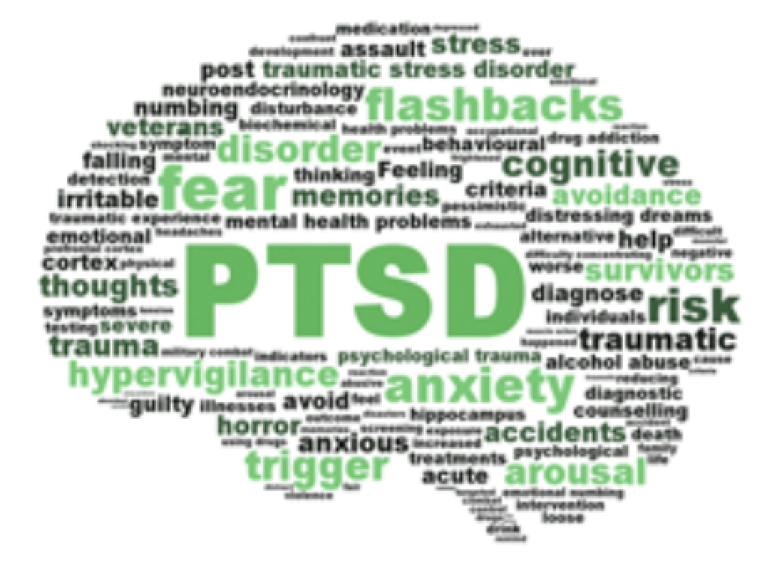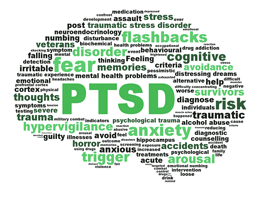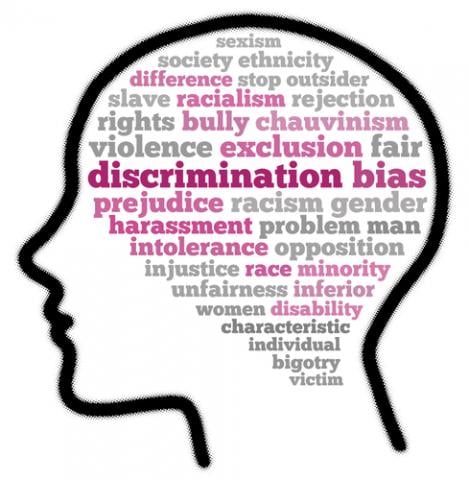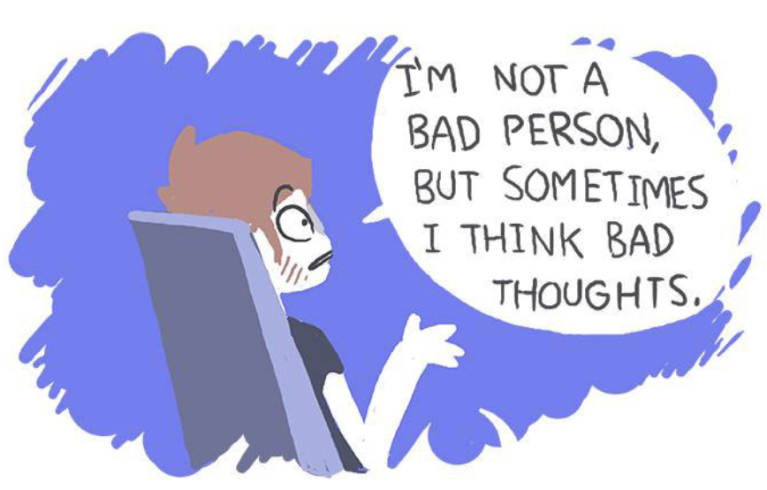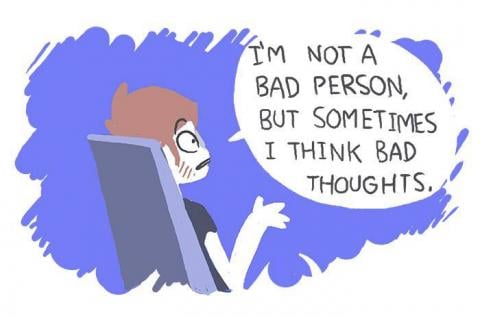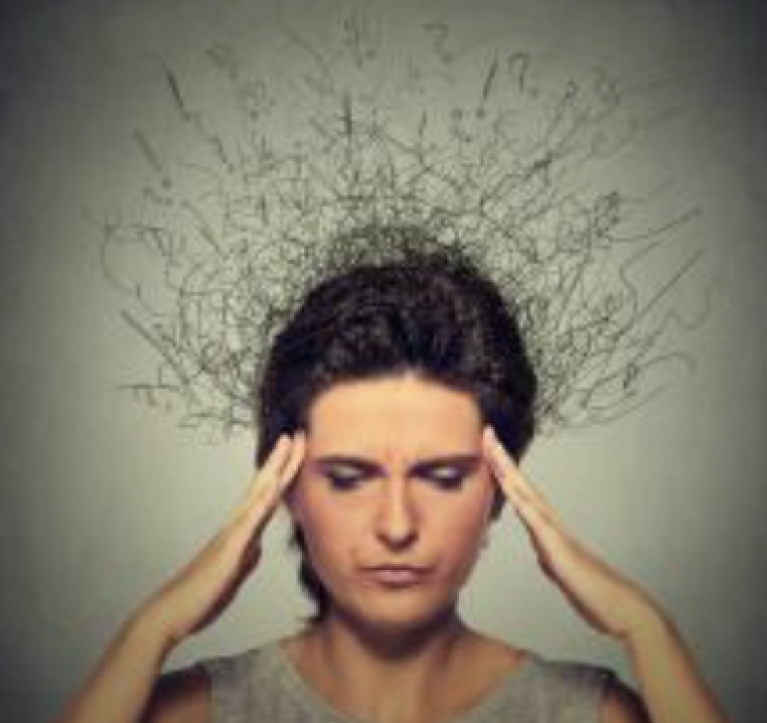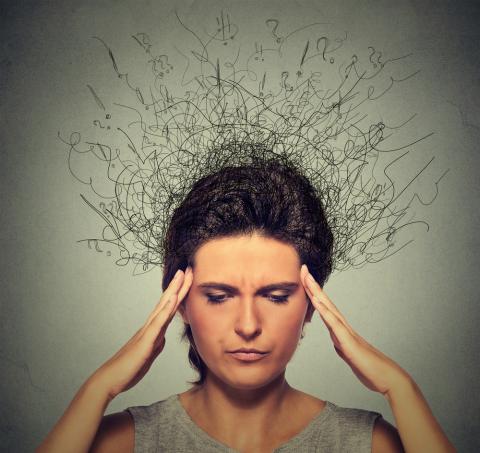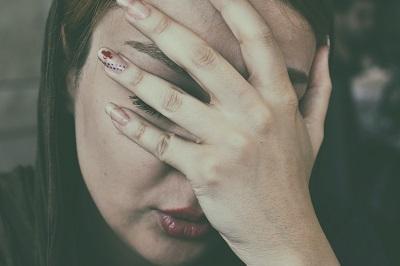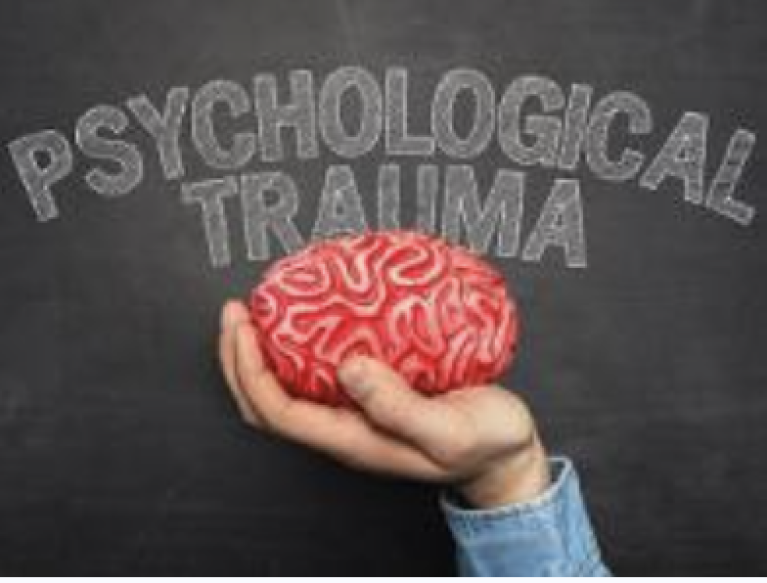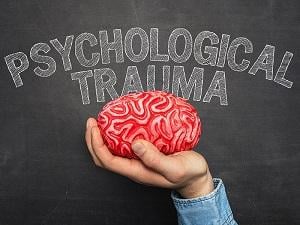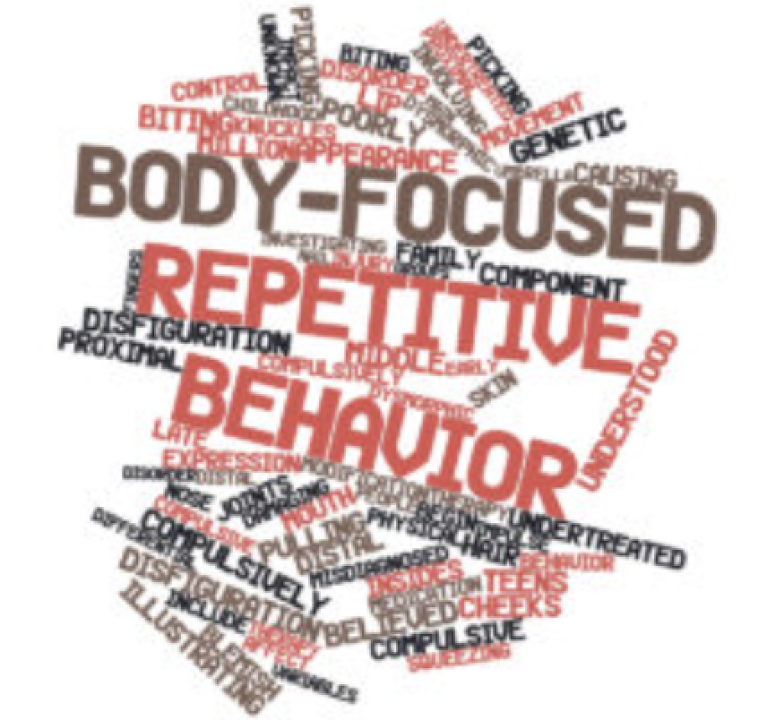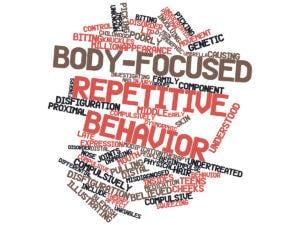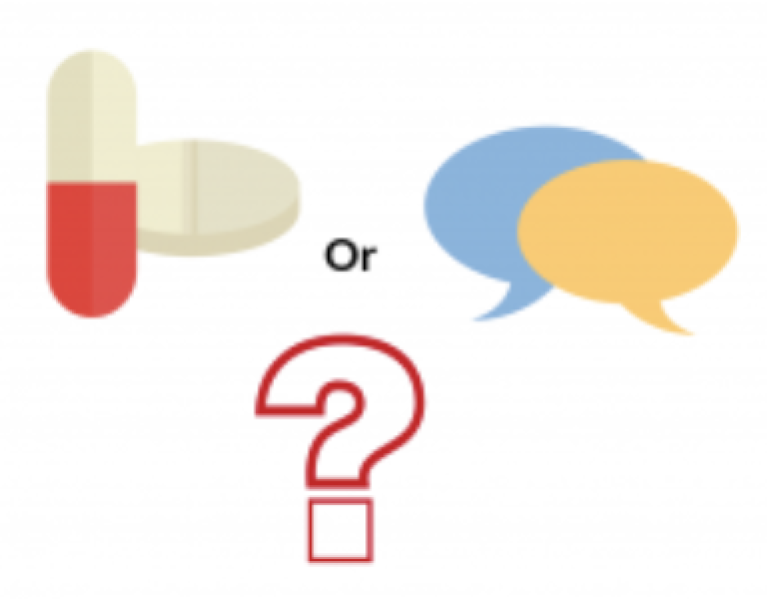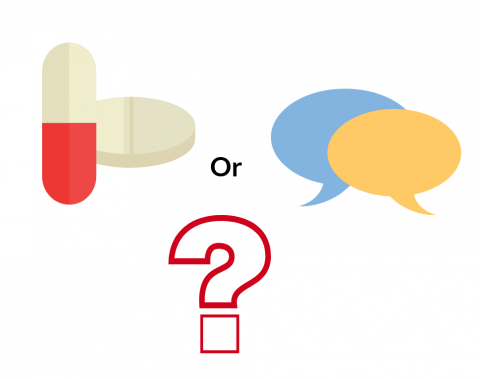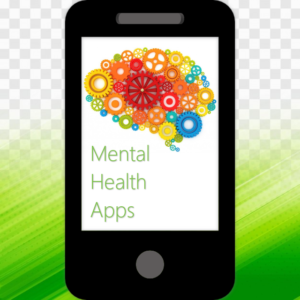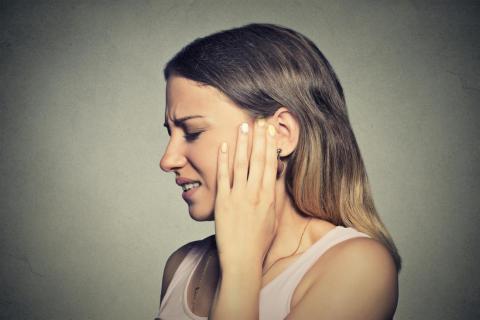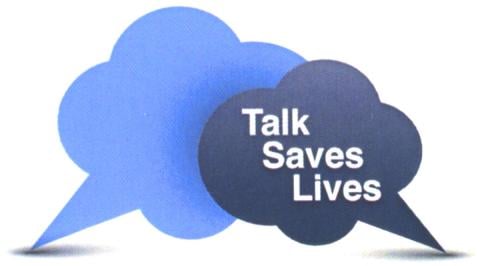Mental Health Webinars for the Public
Free Mental Health Webinars - Help Support Your Mental Health
As part of our mission to offer evidence-based resources to the public, the Anxiety and Depression Association of America’s (ADAA) offers free webinars to address your most frequently asked questions about anxiety disorders, depression, and co-occurring disorders such as OCD and PTSD for adults as well as children. On occasion ADAA may charge a nominal fee for a specific webinar.
- ADDA’s experienced mental health experts offer tips and strategies to help you/your loved ones better manage your mental health. Most of our webinars are live and offer question and answer opportunities.
- ADDA webinars are recorded and available on-demand. Register today. Below is a list of upcoming webinars and our-on-demand offerings that you can register for free.
- To hear about upcoming webinars, sign up for ADAA’s free monthly newsletter, Triumph.
Please note: You can enable captions during the webinar to translate the captions into another language by following these instructions once the webinar begins in Zoom: Translating ADAA Live Webinars. Aquí está una breve instrucción para los participantes del webinar de ADAA en Zoom sobre cómo activar los subtítulos traducidos en Zoom y el enlace para obtener más información.
Overcoming Parental Anxiety: Responding to the Surgeon General’s Call to Support Parental Well-Being
Dr. David Rosmarin talks with ADAA about his study of patients being treated for anxiety and how they managed through the Covid-19 pandemic.
Listen in on this fascinating and very timely conversation between Neal Sideman and virtual reality (VR) expert psychologist Elizabeth McMahon as they discuss how VR can reduce anxiety. Learn about VR. What is it and how is it used in therapy? What kinds of anxiety problems can VR help?
Cognitive Behavioral Therapy for Insomnia (CBT-I) is evidence-based and is recommended as the first-line treatment for insomnia in adults.
Your physical health, mental health, and sexual health are all important for your wellbeing. However, the stigma surrounding these topics can make it embarrassing and difficult to ask questions to your loved ones or health provider.
The World Health Organization recently declared an international crisis of prejudice, racism, and interpersonal violence.
ADAA and Jessi Gold, MD, MS sat down for an ADAA Instagram live community discussion on mental health and medication in honor of Mental Health Awareness Month.
The use of cannabis in the U.S. has undergone a dramatic change over the past two decades. Starting with the campaign to legalize the use of cannabis in the 90s, use, attitudes and risk perception have changed in both adolescent and adult population.
Migraine and depression have a bidirectional relationship, meaning depression increases the risk of migraine and vice versa. Those with depression are 3.4 times more likely to develop migraine. Conversely, those with migraine are 5.8 times more likely to develop depression.
Many experience distress about needles. This can interfere with our healthcare, or make the experience very distressing. This webinar offers a simple breathing skill that can help and is based on many years of research.
Self-Compassion: The Art of Tending to your Struggles with Loving-Kindness Instead of Self-Criticism
When times are difficult, we often respond to our suffering with self-criticism, self-punishment, or pleasure withholding. In this webinar, you will learn how to use self-compassion, the art of treating yourself with kindness, care, and respect.
This webinar is designed to introduce you to the basics of cognitive behavior therapy (CBT) for depression. The webinar begins by briefly describing the symptoms of depression. Next, we’ll cover behavioral activation, which is how to get back to living a life that’s in line with your values.
Understanding the differences between the various levels of OCD treatment can be a daunting task. This presentation will provide an overview of the various levels of treatment and how treatment elements may mirror or differ from traditional outpatient treatments.
Cognitive Behavioral Therapy for Insomnia (CBT-I) is evidence-based and is recommended as the first-line treatment for insomnia in adults.
ADAA Board member and health anxiety expert, Ken Goodman LCSW, shares helpful tips and strategies to manage COVID anxiety. Ken also interviews a former patient who struggled with COVID health anxiety.
En esta conferencia por Internet, estaremos discutiendo qué es la depresión clínica, con qué condiciones se ve asociada y quiénes estan a riesgo. Además, se discutirá cuándo buscar ayuda de un profesional.
What does the research show? Many people are using marijuana (THC) or CBD (which is derived from cannabis or hemp) to help with their anxiety symptoms. Should I be using marijuana or CBD for my anxiety?
The illness you fear may not be the illness you have. Do you worry about cancer, heart attacks, or a brain aneurism? Do you regularly google your symptoms or reexam parts of your body that are concerning?
Worry is common. It becomes problematic when it is excessive, intrusive and constant. It's hard to turn off worry because it feels like problem solving. Learn how problem solving becomes a reinforcement loop and how to break that cycle.
Are you struggling with Covid fatigue? Is it becoming increasingly difficult to stay positive and strong? Come join our panel of experts, ADAA members Ken Goodman, LCSW, Debra Kissen, PhD, MHSA and David H.
Intrusive thoughts can create intense anxiety and lead to rumination for those who suffer from them. ADAA members Drs.
In the midst of the COVID-19 Pandemic, the chronic stressor of systemic racism continues to impede physical and mental health. Are you wondering what you can do to support BIPOC in light of this chronic stressor? Dr.
This webinar provides an overview of the cumulative, inter-generational, and persistent racial inequities faced by communities of color. We also discuss the effects of these trauma on the mind and body and offer strategies on how to cope during this difficult time.
What does depression look like in yourself, in a friend or family member? What are the best treatments available now? What new treatments are on the horizon? Dr. Zachary Cohen is a clinical psychology researcher who focuses on these questions.
Resources noted in the webinar:
Post-traumatic stress disorder is a national public health challenge that disproportionately affects those who served our nation. Although the diagnosis has its roots in combat, the medical community now recognizes that PTSD affects civilians and service members alike.
Our current challenges are overwhelming:
The threats to our health, economy, and relationships caused by COVID-19 are unprecedented. For many people, this has created not only extreme anxiety, but also feelings of sadness, anger, guilt, and confusion. In this webinar, Dr.
In this webinar, Dr. Busman, Senior Director of the Child Mind Institute discusses parenting in the time of the coronavirus.
Learn some practical tips from two certified financial planners from BDF LLC (Kristina Caragiulo and Nick Cosky of BDF LLC in Chicago) on navigating your financial concerns during these challenging times.
ADAA members Ken Goodman, LCSW, Debra Kissen, PhD, MHSA and David H. Rosmarin, PhD, ABPP share helpful tips and strategies to manage coronavirus anxiety and stress for families.
ADAA members Ken Goodman, LCSW, Debra Kissen, PhD, MHSA and David Rosmarin, PhD, ABPP share "top 10" tips and strategies to help manage coronavirus panic and anxiety in this short video.
ADAA members Ken Goodman, LCSW, and Drs. Debra Kissen, Reid Wilson, and Sally Winston share expert tips to manage coronavirus anxiety.
ADAA member Dr. Debra Kissen shares tips and strategies to manage coronovirus anxiety in this 5 minute video.
Research shows, and everyone agrees, that exercising and playing sports can be one of the best natural stress relievers we have for feelings of anxiety, depression and overwhelm.
Anxiety makes us question our decisions and ourselves, and worry
Do you worry that you may have or could acquire a serious medical illness? Do you constantly research disease symptoms on line? Do illnesses like cancer, heart attack, and multiple sclerosis scare you?
What is the longest length of time you’ve been without a digital device? In our evermore digitized world, being compulsively “connected” 24/7 has become the norm.
Coping with neurological illnesses can be very distressing. Can cognitive-behavior therapy (CBT) be helpful for the anxiety and depression that often accompanies these illnesses? Dr. Suma Chand, an expert in this area, provides us with answers.
This webinar describes the nature of anxiety and various ways in which anxiety can be maintained. Dr. Roemer provides an overview of mindfulness, the various ways it can be practiced, and how mindfulness can be of benefit to those with anxiety.
This webinar includes an overview description of the characteristics of Body Dysmorphic Disorder (BDD), the challenges therapists face when diagnosing the disorder (including a contrast/comparison with OCD – a co-morbid disorder), and information about the most effective treatment options.
You may have heard good things about yoga and how it can help anxiety and depression, but what does the research show? Dr.
Do you have a fear of driving? Are you afraid of having a panic attack behind the wheel? Do you worry about losing control and causing an accident? The fear of driving can cripple your life, but there is a solution.
If you're afraid of germs, you might struggle to resist excessively washing your hands, but what if the contaminant you fear is unwanted violent thoughts? What if being "dirty" for you meant believing you might want to or choose to or impulsively hurt someone or hurt yourself?
Separation anxiety for toddlers and young children is normal. However, when the anxiety interferes with normal activities and normal development, it can be a problem.
When your brother or sister has OCD, it can affect everyone in the family - even you!
What can help? Learning about…
Many children and teens live in a world that is fast-paced and highly demanding in many spheres: school, social life, and family life. Sometimes the pressure comes from these outside forces, and other times the pressure comes from within.
“Does it ever get better?” those in eating disorder recovery often ask. Healing from an eating disorder can be such a long journey—with so many bumps along the way—that many feel hopeless and believe they might never recover.
This webinar focuses on Selective Mutism, which is an anxiety disorder that renders a child, who might be otherwise chatty at home, unable to speak fully in places like school, with friends or in the community.
This webinar describes some of the factors that have been identified as operating to increase the risk of suicidal behaviors. The important protective factors that function to prevent suicide are detailed.
There is a lot of overlap between IBS and anxiety disorders. IBS causes anxiety. Also, people with anxiety disorders have a much higher than average occurrence of IBS.
This webinar focuses on anxiety disorders in children and adolescents and ways that caregivers can help. In addition to describing what the symptoms are, specific ways that adults can help are highlighted.
Fobias: una discusión acerca de lo que son las fobias y cómo se pueden tratar por Bryan Balvaneda.
Preocupaciones: una introducción al concepto de preocupaciones para entender cuándo estas se convierten en un problema, con una breve introducción a tratamientos para las preocupaciones por Bryan Balvaneda
Ataque de nervios: una breve explicación sobre lo que es ataque de nervios y cómo se relaciona a otras condiciones de salud mental por Karen G. Martínez
Depresión y ansiedad en niños: una discusión acerca de por qué es importante saber que la depresión y la ansiedad también puede ocurrir en niños, niñas y adolescentes por Karen G. Martinez
Ansiedad: una breve introducción a la ansiedad, los síntomas, las opciones de tratamiento y unos recursos por Natalie Arbid.
Este video es una breve instrucción de lo que es un ataque de pánico, los síntomas y los recursos para obtener ayuda por miembro de ADAA Natalie Arbid.
Depresión: una discusión de cuáles son los síntomas de la depresión clínica y cuando se debe buscar ayuda por Jessica Flores.
Trastorno de Estrés Post-Traumático: un video breve acerca de las consecuencias psicológicas del trauma por Jessica Flores.
This webinar focuses on the negative impact of racism on mental health symptoms for people of color. In addition, we will provide some coping resources to deal with the stress, anxiety, and overall emotional toll of racism.
While most mental health clinicians and organizations focus on the mother-child relationship, a wealth of research now shows that fathers can strongly impact – and be impacted by – their partners’ and babies’ well-being throughout the perinatal period.
The Jed Foundation's JED Campus advisors, Erica Riba, LCSW and Diana Cusumano, LHMC, NCC talk about depression in college students today and how the JED Campus program and other outside resources can help those who are struggling and learn skills to reach out to others.
Español
Now on Demand - What are Intrusive Thoughts and How Can You Deal with Them?
Over the past few years, there has been increased awareness and understanding of OCD within the general public.
El conocimiento es poder. El temor/estigma en la búsqueda de tratamiento para nuestra salud mental es real y afecta a mucha gente. Este seminario cubre qué puede esperar cuando uno busca tratamiento de salud mental.
This webinar provides an overview of heart disease and discusses the latest research findings on the links between depression and heart disease. The webinar also discusses what individuals can do now to reduce their overall cardiac risk.
Ken Goodman, LCSW, explains the pervasive nature of Emetophobia – the fear of vomiting – the vicious cycle which keeps sufferers trapped, and the strategy for conquering this all-consuming fear. Please click here to forward any questions for Mr.
Dr. Blanco-Oilar explains the definition of psychological trauma, reviews pointers to recognize traumatic reactions, and addresses some of the most frequently asked questions related to trauma recovery. Learn about ways to engage in trauma therapy or talk to a loved one about therapy.
Dr. Suzanne Mouton-Odum provides an overview about Body-Focused Repetitive Behaviors (BFRB). BFRB's (hair pulling and skin picking disorders) are commonly misunderstood and, until recent years, little has been known about effective treatments.
Introduction to four CBT strategies to help you overcome social anxiety: mindful focus; cognitive restructuring; assertiveness; and experiments.
Larry Cohen has also provided the following downloadable materials that are referenced in the webinar.
Some of the topics covered: What are the roles of medication and therapy? How can my psychiatrist (or primary care doctor) and my therapist work together as a team? How soon can I expect to see results from medication? How soon can I expect to see results from cognitive-behavioral therapy (CBT)?
Dr. Stephen Schueller provides an overview of the burgeoning field of mobile mental health. He discusses how to find, evaluate, and make best use of apps available on public marketplaces.
Join ADAA for a live Q&A with Dr. Hubbard on May 2nd, 2023 to ask your questions about CBT and Tinnitus.
Dr. Joseph Brand provides an overview of common sleep problems experienced by kids and teens. He covers insomnia, separation anxiety, circadian rhythm problems, and other issues.
Dr. Joseph Brand provides an overview of common sleep problems experienced by kids and teens. He covers insomnia, separation anxiety, circadian rhythm problems, and other issues.
Dr. Jill Harkavy-Friedman discusses the topic of suicide; risk factors and contributors to suicide, along with information about suicide prevention and how an individual might recognize warning signs and help someone who is thinking about suicide.



